

Rock Music World
Biggest Music Community
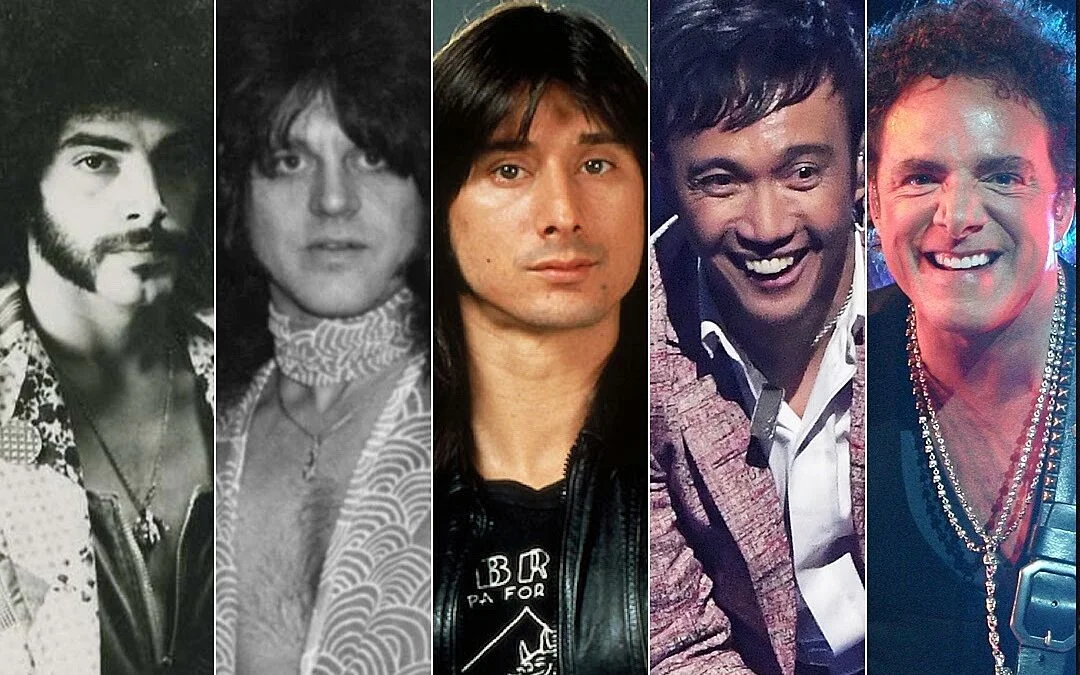
Journey Lead Singers In Order: History and Band Members
In this article, we delve into the captivating history of Journey, an iconic rock band that has left an indelible mark on the music industry. From their humble beginnings to their meteoric rise to fame, Journey has mesmerized audiences worldwide with their unique sound and timeless hits. Join us on a journey through time as we explore the remarkable story of this legendary band.
Formation of the Band
Journey was formed in 1973 in San Francisco, California, bringing together a group of highly talented musicians. The founding members included Neal Schon, Gregg Rolie, Ross Valory, Aynsley Dunbar, and George Tickner. With their combined musical prowess and creative vision, they set out to create something extraordinary.
Early Years and Musical Style
During their early years, Journey experimented with a fusion of rock, jazz, and progressive influences, creating a distinctive sound that set them apart from their contemporaries. Their self-titled debut album, released in 1975, showcased their musical versatility and marked the beginning of their incredible journey.
Evolution and Breakthrough Success
In 1977, Journey underwent a significant change that would forever shape its destiny. Steve Perry joined the band as their lead vocalist, injecting new energy and unparalleled vocal range into their music. This lineup change proved to be a turning point for Journey, leading to a series of chart-topping albums and unforgettable songs.
Chart-topping albums and Hit Singles
Journey’s breakthrough came in 1978 with the release of their album “Infinity,” which became a massive success. The album spawned the hit singles “Wheel in the Sky” and “Lights,” propelling Journey into the mainstream spotlight. They continued their winning streak with subsequent albums, including “Evolution” (1979) and “Departure” (1980), which produced hits like “Lovin’, Touchin’, Squeezin'” and “Any Way You Want It.”
The Iconic Album: “Escape”
In 1981, Journey released their most iconic album to date, “Escape.” This album elevated their status as rock superstars and solidified their place in music history. Featuring the mega-hits “Don’t Stop Believin’,” “Open Arms,” and “Who’s Crying Now,” “Escape” became an instant classic, captivating audiences with its emotionally charged lyrics and powerful melodies.
The Power Ballad Era
Journey’s success continued into the mid-1980s, defined by the rise of power ballads that struck a chord with fans worldwide. Songs like “Faithfully,” “Separate Ways (Worlds Apart),” and “Send Her My Love” showcased the band’s ability to create heartfelt and anthemic ballads that resonated deeply with listeners.
A Change in Direction
As the 1990s approached, Journey faced challenges and underwent significant lineup changes. Steve Perry departed from the band in 1987, leading to a period of transition as they searched for a new lead vocalist. Despite these challenges, Journey remained resilient and continued to produce music that captivated its loyal fan base.
Journey’s Enduring Legacy
Although the band’s popularity waned in the late 1990s, their music never faded from the hearts of their dedicated fans. Journey’s timeless classics continue to resonate with audiences of all ages, thanks to their emotional depth, infectious melodies, and inspiring lyrics. Their songs have become anthems for perseverance, love, and the power of music itself.
Past Journey band members include the following:
- Steve Perry (1977-1998)
- Aynsley Dunbar (1974-1978)
- Robert Fleischman (1977)
- Steve Smith (1978-1985, 1995-1998)
- Randy Jackson (1985-1987)
- Steve Augeri (1998-2006)
Current Journey band members:
- Neal Schon – Guitar (1973-present)
- Jonathan Cain – Keyboards (1980-present)
- Ross Valory – Bass (1973-1985, 1995-present)
- Arnel Pineda – Vocals (2007-present)
- Deen Castronovo – Drums (1998-present)
Lead Singers of Journey
Van Halen Lead Singers In Order: A Journey Through the Years
Black Sabbath Singers In Order: Ever-Changing Lineup of Black Sabbath
The Original Journey: Gregg Rolie’s Era
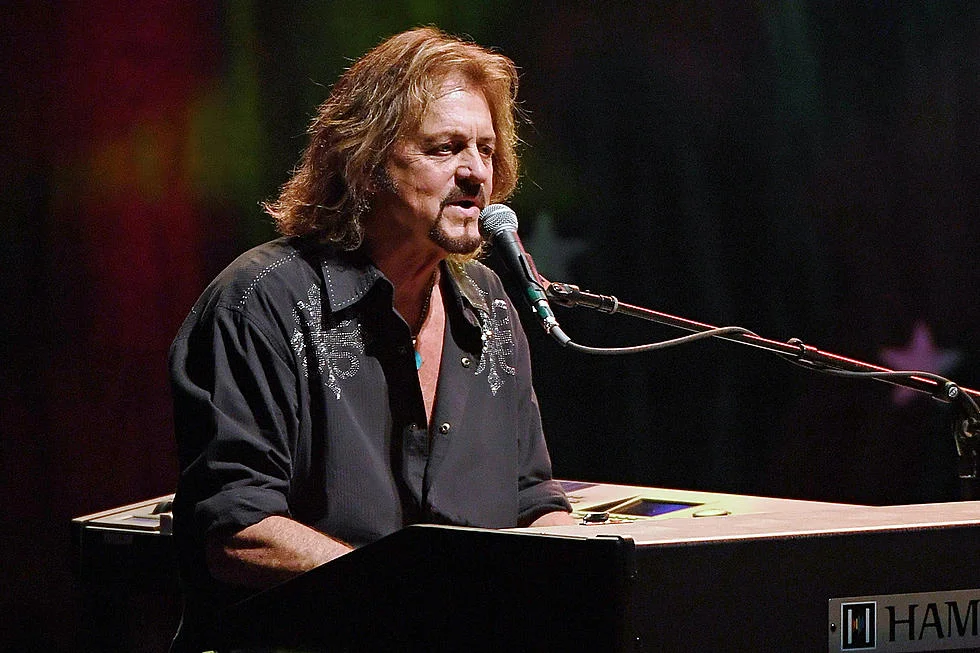
Gregg Rolie, a two-time Rock and Roll Hall of Fame inductee, served as the original lead singer of Journey. He began his musical career as a co-founder and lead vocalist of Santana before joining forces with Neal Schon to form Journey. Rolie’s soulful voice and exceptional skills as a keyboardist and harmonicist contributed to the band’s early success. He showcased his talent on albums like “Journey,” “Look into the Future,” and “Next.” However, Rolie transitioned to co-lead vocals when Steve Perry joined the band in 1977.
Steve Perry: The Voice of Journey’s Greatest Hits
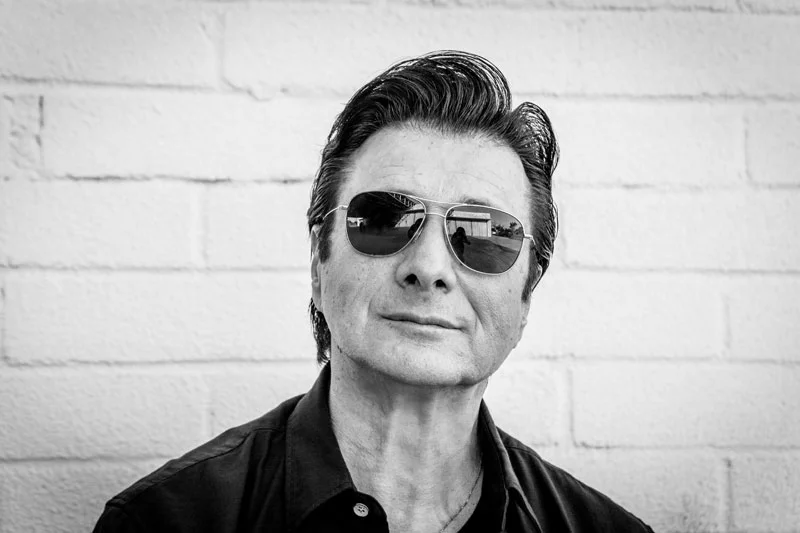
Steve Perry, widely recognized as the quintessential Journey lead singer, propelled the band to unprecedented heights during their most commercially successful era. Born with a gift for singing, Perry’s powerful and emotive vocals struck a chord with audiences worldwide. With Perry at the helm, Journey released a string of chart-topping albums, including “Infinity,” “Escape,” and “Frontiers.” Iconic songs like “Don’t Stop Believin’,” “Open Arms,” and “Faithfully” became anthems for a generation. Perry’s remarkable songwriting abilities and magnetic stage presence contributed to the band’s enduring legacy.
Current Lead Singer: Arnel Pineda

Following Steve Perry’s departure in 1987, Journey experienced a series of lead singer changes. Steve Augeri, known for his vocal range and stage charisma, took over from 1998 to 2006. Jeff Scott Soto briefly joined the band in 2006, leaving his mark with his distinctive style. However, it was Arnel Pineda who breathed new life into Journey as the current lead singer. Pineda’s incredible vocal resemblance to Steve Perry, coupled with his dynamic stage presence, won the hearts of fans worldwide. Since 2008, Pineda has seamlessly integrated into the band, injecting fresh energy and passion into their performances.
Journey’s Enduring Discography: Albums That Defined an Era
Over the past five decades, Journey has released a diverse and extensive discography, showcasing their musical prowess and creativity. Let’s explore some of their most iconic albums:
“ Infinity ” (1978): With Steve Perry as the lead singer, “Infinity” marked a significant turning point for Journey. It featured hit singles like “Wheel in the Sky” and “Lights,” solidifying their place in the rock music landscape.
“ Escape ” (1981): This album became a monumental success, boasting chart-topping hits such as “Don’t Stop Believin'” and “Open Arms.” “Escape” catapulted Journey to international stardom and remains one of their most beloved records.
“ Frontiers ” (1983): Building upon their previous success, “Frontiers” showcased Journey’s evolution with tracks like “Separate Ways (Worlds Apart)” and “Faithfully.” The album’s polished production and memorable hooks solidified Journey’s status as one of the biggest rock bands of the 1980s.
“ Raised on Radio ” (1986): Released during the band’s final years with Steve Perry, “Raised on Radio” featured a more radio-friendly sound and produced hits like “Be Good to Yourself” and “I’ll Be Alright Without You.” Despite tensions within the band, the album showcased their ability to create catchy, melodic rock tunes.
“ Revelation ” (2008): With Arnel Pineda as the lead singer, “Revelation” marked a new chapter for Journey. The album featured new recordings of their classic hits, reaffirming Pineda’s vocal prowess and rekindling the band’s popularity among longtime fans and a new generation.
“ Eclipse ” (2011): Continuing their musical journey with Pineda, Journey released “Eclipse,” a record that showcased their ability to evolve while staying true to their roots. The album demonstrated their enduring songwriting skills and featured tracks like “City of Hope” and “Edge of the Moment.”
“Escape & Frontiers Live in Japan” (2019): As a testament to their enduring appeal, Journey released a live album featuring their performances of the “Escape” and “Frontiers” albums in their entirety. The release showcased the band’s timeless hits in a live setting, capturing the energy and excitement of their concerts.
Journey’s Impact and Legacy
Journey’s impact on the rock music landscape cannot be overstated. With their infectious melodies, anthemic choruses, and powerful vocals, they carved out a unique sound that resonated with millions of listeners. Their music transcended generations, becoming the soundtrack to countless moments and capturing the hearts of fans worldwide.
Steve Perry’s tenure as the lead singer marked the band’s most successful period, and his distinct voice became synonymous with Journey’s sound. His emotional delivery and ability to connect with audiences elevated their songs to new heights and created an unparalleled legacy.
Arnel Pineda’s addition to the band injected new energy into Journey and allowed them to continue their musical journey. Pineda’s remarkable vocal resemblance to Perry breathed new life into the band’s live performances, earning him a dedicated fanbase and ensuring that Journey’s music lives on.
Journey’s timeless hits continue to be celebrated and embraced today. Songs like “Don’t Stop Believin'” have become cultural touchstones, appearing in films, TV shows, and sporting events, and capturing the imaginations of new generations of listeners.
Journey Band Member’s Ages
Here, is the list of all the Journey member’s ages. It seems like all of the Journey band members are above 50 and below 80.
Recommended Posts
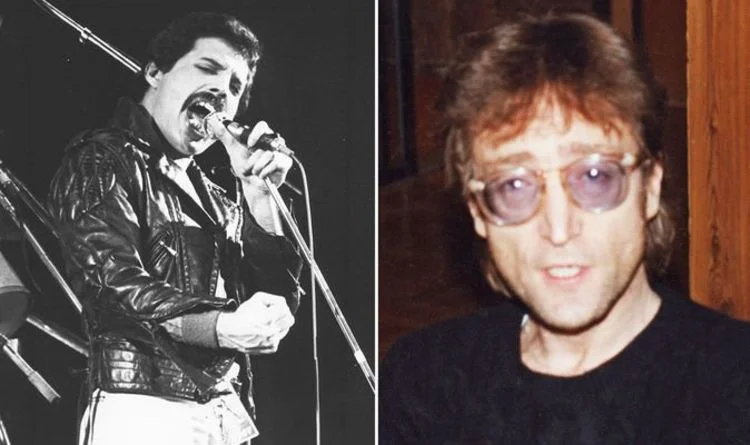
John Lennon’s opinion on Queen
John Lennon was the oldest founding member of The Beatles and was born in Liverpool, England, much like all the other members of the band. He was only 29 years old when the band broke up in 1970, and the music industry had seen rapid turmoil during that decade with the emergence of numerous new […]
Rush’s Geddy Lee gives his opinion on Led Zeppelin
In an interview with Classic Rock magazine, Geddy Lee, the bassist, singer, and occasionally pianist for Rush, shared his thoughts on Led Zeppelin. The Canadian guitarist discussed the band’s sound and offered commentary on their iconic album “Led Zeppelin IV.” Rush’s Geddy Lee gives his opinion on Led Zeppelin: Geddy said, “I had the pleasure […]
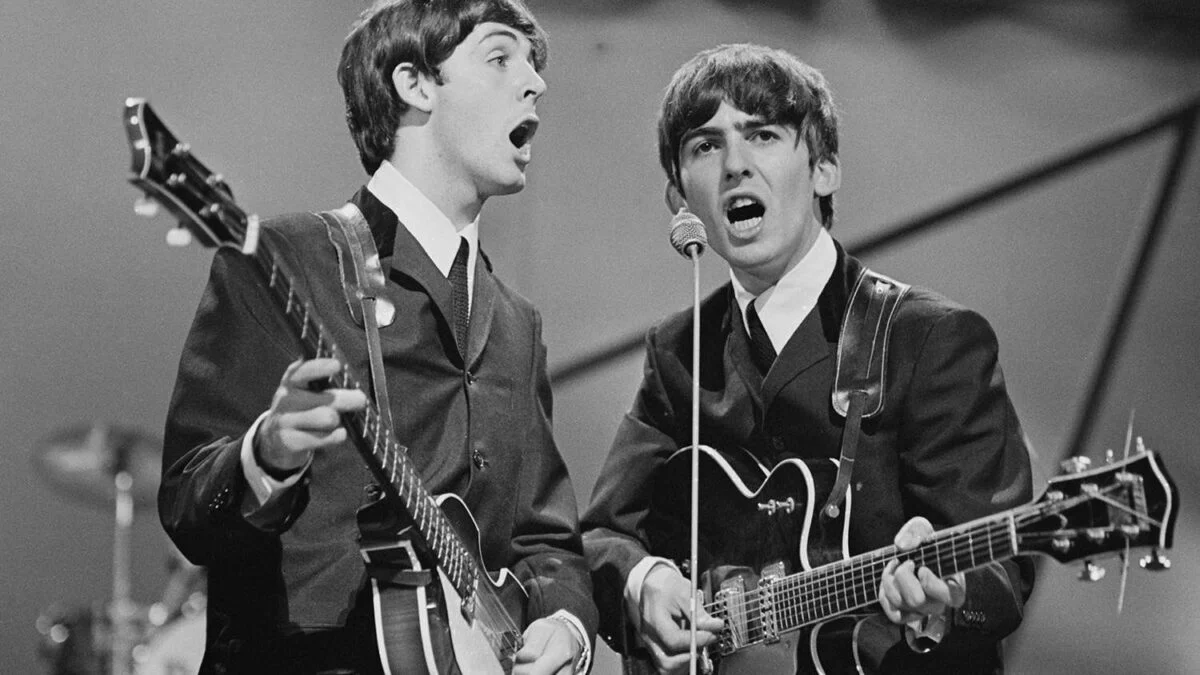
George Harrison’s opinion on Paul McCartney’s solo career
With just 13 studio albums, The Beatles were the most successful and influential band of all time. They sold an estimated 600 million records worldwide, making them the best-selling band in history, and they impacted several generations of musicians. However, John Lennon’s decision to quit the band in 1970 brought an end to the group’s […]
Leave A Comment Cancel reply
Save my name, email, and website in this browser for the next time I comment.
Post Comment
Steve Perry
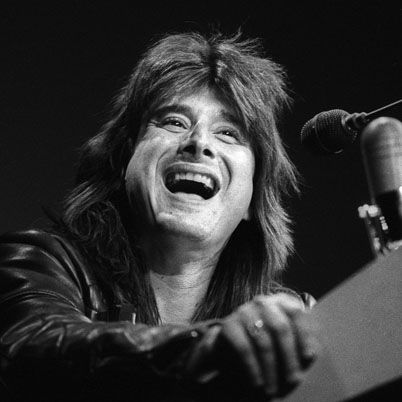
Who Is Steve Perry?
Steve Perry played in several bands before joining Journey in 1977. The band achieved tremendous pop rock success with its 1981 album Escape , which featured the now-classic "Don't Stop Believin'." As the group's lead singer, Perry became one of the era's most famous singers. He also had some hits on his own, including "Oh Sherrie." Perry left Journey in 1987, and except for a brief reunion, he remains a solo artist.
While attending high school in Lemoore, California, Perry played drums in the marching band. He tried college for a while, performing in the choir, but eventually abandoned school for his musical dreams. Hoping to break into the business, he moved to Los Angeles for a time. There, he worked a number of jobs, including singing on commercials and serving as an engineer in a recording studio. All the while, Perry played with a number of different groups as a vocalist and drummer. He seemed to be on the edge of a breakthrough with the group Alien Project, when it suddenly disbanded — tragically, one of its members was killed in a car crash.
Journey: "Oh Sherrie" and "Don't Stop Believin'"
In 1977, Perry caught his big break, landing a gig as the vocalist for Journey, which began performing as a jazz rock group in the early 1970s, in San Francisco. With Perry on board, the band moved more toward mainstream rock, and began to see some chart success with the first album with Perry, 1978's Infinity . The band's ode to San Francisco, "Lights," became a minor hit as did "Wheel in the Sky" and "Anytime."
Journey broken into the Top 20 with "Lovin', Touchin', Squeezin'" on their next album, Evolution (1979). Buoyed by such hits as "Open Arms," "Who's Crying Now" and "Don't Stop Believin'," Escape (1981) became the band's first No. 1 album, selling more than 7 million copies. While the band was hugely popular with music fans, many critics were less than kind.
By the early 1980s, Journey had emerged as one of rock's top acts. Perry proved that while he may have been short in stature, he possessed one of the era's biggest and most versatile voices. He was equally adept at ballads, such as "Open Arms," and at rock anthems, such as "Any Way You Want It." Behind the scenes, Perry helped write these songs and many of the band's other hits. He penned their most enduring song, "Don't Stop Believin'," with guitarist Neal Schon and keyboardist Jonathan Cain.
Journey continued to be one of the era's top-selling acts, with 1983's Frontiers . The album featured such songs as "Separate Ways (Worlds Apart)" and "Faithfully." To support the recording, the band undertook an extensive world tour. Around that time, Journey also became the first band to license their music and likenesses for a video game.
With 1986's Raised on Radio , Journey enjoyed another wave of success. However, Perry was ready to part ways with his bandmates. Perry left the band in 1987 after the album tour. In a statement to People magazine, Perry explained: "I had a job burnout after 10 years in Journey. I had to let my feet hit the ground, and I had to find a passion for singing again." Perry was also struggling with some personal issues at the time; his mother had become very sick, and he spent much of his time caring for her before her death.
Perry reunited with Journey in 1996, for the reunion album Trial By Fire , which reached as high as the No. 3 on the album charts. But health problems soon sidelined the famous singer—a hip condition, which led to hip replacement surgery—and his bandmates decided to continue on without him.
Solo Projects
While still with Journey, Perry released his first solo album, Street Talk (1984). The recording sold more than 2 million copies, helped along by the hit single, "Oh Sherrie." Burnt out after splitting with Journey, Perry took some time out before working on his next project.
Nearly a decade later, Perry re-emerged on the pop-rock scene with 1994's For the Love of Strange Medicine . While the album was well-received—one ballad, "You Better Wait," was a Top 10 hit—Perry failed to reach the same level of success that he had previously enjoyed. In 1998, he provided two songs for the soundtrack of Quest for Camelot , an animated film. Perry also released Greatest Hits + Five Unreleased that same year.
Recent Years
While he has largely stayed out of the spotlight, Perry continues to be heard in movies and on television. His songs are often chosen for soundtracks, and Journey's "Don't Stop Believin'" even played during the closing moments of the hit crime-drama series The Sopranos in 2007. In 2009, a cover version of the song was done for the hit high school musical show Glee , which introduced a new generation to Perry's work.
According to several reports, Perry began working on new material around 2010. He even built a studio in his home, which is located north of San Diego, California. "I'm finishing that room up and I've written a whole bunch of ideas and directions, all over the map, in the last two, three years," Perry told Billboard in 2012.
In 2014, Perry broke from his self-imposed exile from the concert stage. He appeared with the Eels at several of their shows. According to The Hollywood Reporter , Perry explained that "I've done the 20-year hermit thing, and it's overrated." His return to performing "has to do with a lot of changes in my life, including losing my girlfriend a year ago and her wish to hear me sing again" — referring to his romance with Kellie Nash, who died in late 2012 from cancer.
Although Perry and his old bandmates had long since ventured in separate directions, the group did reunite for their induction into the Rock and Roll Hall of Fame in April 2017.
In the meantime, the singer began recording again. On August 15, 2018, he released his first new song in 20 years, the ballad "No Erasin." The track arrived ahead of his new album, Traces , his first full-length studio recording since For the Love of Strange Medicine in 1994.
Regardless of what the future holds, Perry has already earned a place in rock history. Rolling Stone magazine named him one of music's top 100 singers. According to American Idol judge and former Journey bassist, Randy Jackson, Perry's voice is one of kind. "Other than Robert Plant, there's no singer in rock that even came close to Steve Perry," Jackson said. "The power, the range, the tone—he created his own style. He mixed a little Motown, a little Everly Brothers, a little Zeppelin."
QUICK FACTS
- Name: Steve Perry
- Birth Year: 1949
- Birth date: January 22, 1949
- Birth State: California
- Birth City: Hanford
- Birth Country: United States
- Gender: Male
- Best Known For: Steve Perry was the lead singer of pop rock band Journey from 1977 to 1987. He is known for having a wide vocal range, which can be heard on such popular hits as "Don't Stop Believin'" and "Oh Sherrie."
- Astrological Sign: Aquarius
We strive for accuracy and fairness.If you see something that doesn't look right, contact us !
CITATION INFORMATION
- Article Title: Steve Perry Biography
- Author: Biography.com Editors
- Website Name: The Biography.com website
- Url: https://www.biography.com/musicians/steve-perry
- Access Date:
- Publisher: A&E; Television Networks
- Last Updated: July 23, 2020
- Original Published Date: April 2, 2014
Watch Next .css-smpm16:after{background-color:#323232;color:#fff;margin-left:1.8rem;margin-top:1.25rem;width:1.5rem;height:0.063rem;content:'';display:-webkit-box;display:-webkit-flex;display:-ms-flexbox;display:flex;}
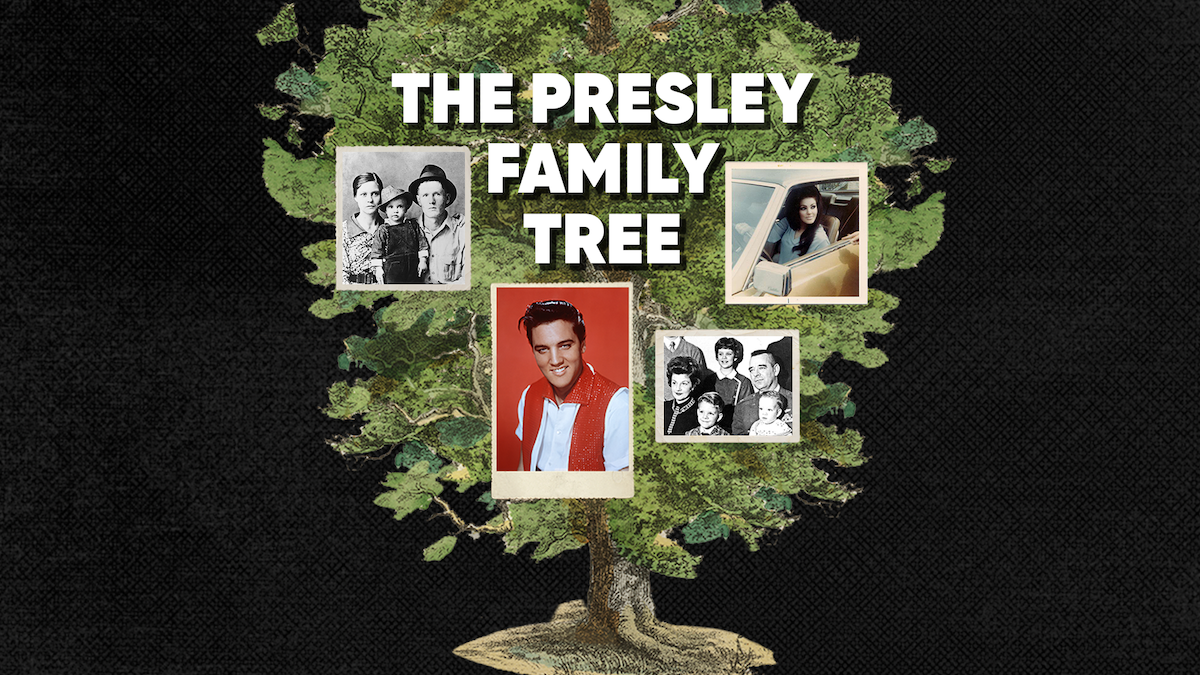
Famous Musicians

Inside Amy Winehouse’s Downward Spiral and Death

Gwen Stefani

2024 ACM Awards: Who’s Nominated and How to Watch
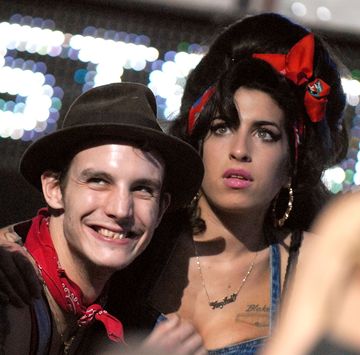
Why Amy Winehouse and Her Ex-Husband Didn’t Last
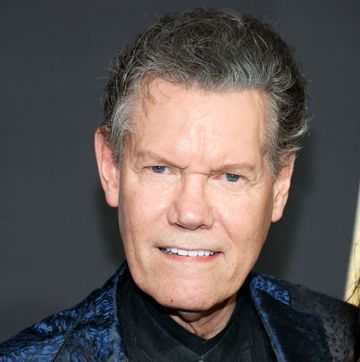
Randy Travis
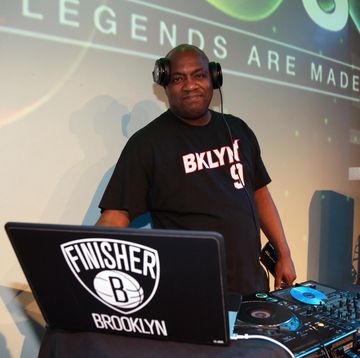
The Life and Hip-Hop Legacy of DJ Mister Cee
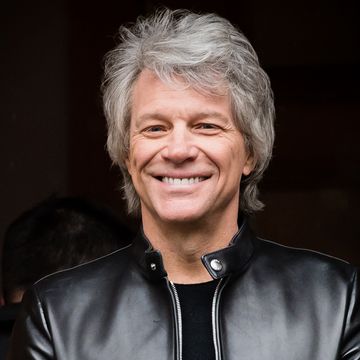
Jon Bon Jovi

How to Score Tickets to Pitbull's Tour
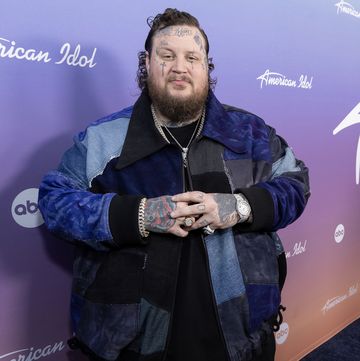
Mick Jagger
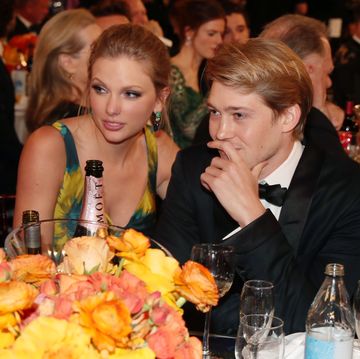
Taylor Swift and Joe Alwyn’s Private Relationship
- Donald Fagen's Steely Dan Regret
- 50 Greatest Solo Artists
- Jagger & Richards Yearly Photos
- 50 Greatest Power Ballads
- Hair Purposely Left in 'Let It Be'
- John Oates Album Review

How Journey’s Arnel Pineda Fixed His Vocal Woes
Journey are in the homestretch of their current tour , which wraps up this week. The trek, which includes Toto , has been “nonstop,” drummer Deen Castronovo tells UCR. But w ith the July 8 release of their 15th album, Freedom , the roadwork will pick up again and continue through 2022 and beyond.
The drummer says they’re ready for the challenge, especially and notably, singer Arnel Pineda , who's been showing increasing signs over the past year that the band’s classic catalog was starting to take its toll. But fans who've seen the band on their new Freedom tour have witnessed a revitalized Pineda at the mic.
A soundman change and help from a vocal coach has made a huge difference, says Castronovo. “He’s soaring every night,” the drummer notes, adding that Pineda went to a "totally different place" with his voice on the band's upcoming album.
It's been a real revelation watching Arnel Pineda on this tour. It seems like things have turned around. He’s been struggling, and we brought a vocal coach out who is fantastic. He came out and was coaching Arnel with how to deliver a little bit differently. A lot of it was mental as well as physical, but once we got [a new] soundman and once things got turned down and he was able to hear, [everything was different]. To think that he’s been struggling with this for 14 years, he said. I had no idea. I think it was something that he didn’t know if he had the liberty to say, “Hey, I need to fix this” or “You guys need to try something different here,” either get a new soundman or whatever. But once we got this guy, Tom, everything changed. He’s a different guy. [Pineda’s] a different guy. Oh, my God, it blew us away. I think it’s been 15 shows since that [change], and every night, he sounds amazing.
Before, he was always trying his best and he would get there, but it was just him not being able to hear. Once they got that fixed, you can see the weight lifted off the kid. He’s just happy again. He and I are goofing around onstage, probably more than we should. [Laughs] We were goofing off all night because it’s just like a weight has been lifted. To have that kind of pressure stuck on you and not knowing what to do, it’s like, “How come I can’t do this?” That’s what it took.
The difference between last year's performance and some of the gigs from this year is striking. I’ve got to give credit to Dave Stroud, the vocal coach. He helped him a lot. It wasn’t just trying to get him to sing better or any of that, it was a lot of mental [thoughts]. Because I’m sure if you’re struggling, you’re going, “Why is this happening?” He had to get out of his head. Dave has worked with everybody. He was recommended by Randy Jackson. That helped a ton. Getting him out of his head and going, “Try this.” But once the soundman came, you put both of those elements together - David’s teaching and being able to hear - he’s soaring. He’s soaring every night.
It's something hearing Narada Michael Walden and Neal Schon play together on this new album. His drum parts on the record are perfect and they’re amazing. He brings that swing. There was this one song, “After Glow.” Neal was like, “Dude, I want you to sing on it.” He wanted me to do backgrounds. So I did the backgrounds. Then, he goes, “Why don’t you try and put a lead vocal on this?” It’s like, “Oh, boy, OK.” I’d never heard the song and didn’t know anything about it. But I went in there and we did a Zoom. He walked me through the entire song, him and Narada. I did it, and I was like, “Oh, my gosh.” It actually came out really good. Do you have the record? Have you heard it?
It’s pretty cool stuff! But I hadn’t heard it! I only heard that one song. I finally got the record about a month ago. So I’m still listening to it. We’re doing “ You Got the Best of Me ” now live. I had to learn that, and I’m listening to Narada’s parts and I’m like, “Oh, my gosh.” It’s not just straight ahead. He’s doing some different tom parts in the verses, so I had to try and cop his stuff. But I’m going to have to do the same thing that I did with [Steve] Smith when I first joined Journey. I’m going to have to go to his house and go, “Show me what you’re doing here!” There’s some stuff [on the album] that I’m like, “What’s he doing?” I know it’s amazing, but I’m not catching it with my puny little mind. It’s one of those things that I’ll just go back and woodshed with him, which will be really cool.
Listen to Journey's 'You Got the Best of Me'
Jonathan Cain told us earlier this year that the band steps "out a little bit" on the new album. You can hear that. I agree. I love this stuff. It’s definitely not your typical Journey [music] or Escape , Frontiers or even Revelation . Arnel’s vocals on this ... . There are songs on there, I was listening and going, “Who is that singing?” I really did. I forget what the song was, but [I thought] that doesn’t even sound like Arnel, because he took it to a totally different place. I never knew that he could sing like that. He had that really bluesy, thick and syrupy blues thing. He’s really come into his own. It sounds amazing. He’s definitely not the Steve Perry clone. He’s made this stuff his own.
How did Narada Michael Walden help when it came to working on the song you sang on the album? He’s so meticulous. But he’s got a sweet spirit about him. Another great big old soul and a teddy bear. For me, I’ve never sang [that kind of vocal]. It was kind of gospel-sounding with the backgrounds. I had to layer all of those backgrounds. I would do part by part. We did a couple of lows, a couple of mids and then a couple of the highs to thicken it up. But I’d never done it [like that] before. The lead vocal, I was like, “OK, what am I going to do here?” Obviously, I can’t get away from Steve Perry. He’s my biggest influence vocally. My inflections, obviously, it’s going to be him. I just robbed him blind. [Laughs] I don’t have my own style per se. Narada helped me with that and guided me through that. That was a huge thing. Because you know, he’s [worked with] Aretha Franklin . I mean, Mariah Carey , Whitney Houston - those are real singers. It was daunting, but he was so good to me and they worked through it with me, and it was great. It just came out great.
Journey Albums Ranked
More from ultimate classic rock.

Journey's Neal Schon says he and Steve Perry are 'in a good place' before band's 50th anniversary

On the cusp of turning 50, the band that etched “Don’t Stop Believin’ ” and “Faithfully” into lighters-up lore is entering “a cleaned-up chapter of Journey.”
That’s according to Neal Schon, the band’s ace guitarist, lone original constant and de facto CEO.
Despite decades of fluctuating lineups and snarly lawsuits among band members , Journey endures.
On July 8, the band released “Freedom,” its first new album in 11 years that also presents the return of Randy Jackson (as in "American Idol") on bass. The 15-song collection is steeped with vintage-sounding ballads (“Still Believe in Love,” “Live to Love Again”) and soaring melodic rockers (“United We Stand,” “You Got the Best of Me”).
Journey – including longtime keyboardist Jonathan Cain, peppy singer Arnel Pineda , drummer Deen Castronovo and keyboardist Jason Derlatka, adding bassist Todd Jensen for live shows – will hit Resorts World Las Vegas this month for shows backed by a symphony orchestra before rolling through more arena dates this summer and in early 2023, the band’s official 50th year.
Need a break? Play the USA TODAY Daily Crossword Puzzle.
Journey in pop culture: Quarantined family perfectly re-creates 'Separate Ways' music video at home
Regular road warriors who consistently pack arenas and stadiums – their 27 shows this year grossed $28 million, according to Billboard Boxscore – Journey relies on a solid catalog of mega-hits and a devoted fan base that appreciates the familiarity.
The Rock and Roll Hall of Famers also received a boost from Netflix’s ’80s-centered “Stranger Things” when the show used “Separate Ways (Worlds Apart)” in the trailer for the just-ended season, launching the song onto Billboard’s Rock Digital Songs chart. The affable Schon, 68, talked with USA TODAY about the band’s complicated legacy, his relationship with former frontman Steve Perry and plans for Journey's golden anniversary.
Santana recovers: Carlos Santana collapsed on stage from heat, dehydration
Question: Are you amazed at how the Journey train keeps rolling after almost 50 years?
Neal Schon: It’s quite an accomplishment and I’m very proud of what we’ve done and how we’ve gotten through emotional and personnel changes and survived. It’s pretty mind-boggling but also a lot of hard work.
Q: Does the title “Freedom” refer to anything specifically?
Schon: Our ex-manager Herbie Herbert wanted to call the (1986) “Raised on Radio” album “Freedom” because he always came up with these one-word titles. Steve (Perry) fought him on that and got his way, so we sat on it for many years. When we got through the lawsuit with the ex-bandmates, we made the new LLC Freedom (JN) and when we were tossing around album titles said, why not just call the whole thing “Freedom?" It's for the times right now.
Q: There’s been a bit of a revolving door in the rhythm section. Deen Castronovo is back for the live shows, but Narada Michael Walden played drums on the album, and Randy Jackson is back in the band, at least on record?
Schon: Deen is singing and playing his butt off. He’s such a musical sponge, this guy. He’s been like my little brother for close to three decades and is such a joy to work with. Randy, he’d been working with me diligently this whole time. He’s so many things beyond being an amazing musician and bass player.
Rock in the rain: Def Leppard, Motley Crue, Poison, Joan Jett combat weather during The Stadium Tour
Q: Will Randy play at any of the upcoming live shows or is Todd Jensen handling those duties?
Schon: Randy is still recovering from some surgery and he stays very busy and Todd fits like a glove. Having said that, I think with our 50th anniversary next year, there’s room for everybody to jump in if they want to participate. We did go through an ugly divorce with (Steve Smith and Ross Valory) with the court proceedings (in 2021, Schon and Cain settled a $10 million trademark lawsuit with the band’s former drummer and bassist). But definitely, if Steve Perry wanted to come on and sing a song, yes. If (original Journey singer) Gregg Rolie wanted to come sing a couple of songs, yes. Randy Jackson (can) come sit in on some of the material – he played on a lot of hits on “Raised on Radio.”
Q: Do you talk much with Steve Perry?
Schon: We are in contact. It’s not about him coming out with us, but we’re speaking on different levels. That’s a start, even if it’s all business. And I’m not having to go through his attorney! We’ve been texting and emailing. He’s a real private guy and he wants to keep it that way. We’re in a good place.
Q: Do you think, after 15 years, that people have accepted Arnel?
Schon: I was diligent in that I wanted to show the massive size of our audience, so I hired photogs to come out every show and shoot the audience and show the size of the crowd to make everybody see, what am I missing? From putting up the different photos every night and the reviews from the fans online, I saw very little of “This is not Journey, man.” I think we just shut everybody up.

Feb 9, 2024
MISSISSIPPI COAST COLISEUM
Feb 12, 2024
Sunrise, FL
Amerant bank arena.
Feb 14, 2024
Greenville, SC
Bon secours wellness arena.

Your Email*
Your Message*


Artists - A-H
- & Young
- .38 Special
- Aaron Lewis
- Aaron Neville
Artists - I-P
- Iron Butterfly
- Iron Maiden
- Izzy Stradlin
Artists - Q-Z
- Queens of the Stone Age
- Queensrÿche
- Classic Rock

- Keyboardist Jim Beard, Known for His...
- 12 Rock Legends Who Openly Dislike...
- 10 Rock Stars Who Can’t Stand...

- Legendary Motorhead Frontman, Lemmy, To Be...
- Happy 76th Birthday Tony Iommi: How...
- Metallica Secures Best Metal Performance at...

- Unveiling Stevie Ray Vaughan’s Top 10...
- Album Review: “Two Steps From The...
- The Facts In The Early Life...
Arnel Pineda on JOURNEY’s Potential Reunion with Steve Perry and Career Impact

via GIGS / YouTube
In a chat with Rolling Stone, Arnel Pineda, the frontman of the iconic band Journey, shared his thoughts on the possibility of reuniting with the former lead singer, Steve Perry. Pineda, known for his upbeat personality and powerful vocals, revealed his openness to the idea, sparking excitement among fans.
Dreamy Encounter with an Icon: Arnel Meets Steve Perry
Expressing his amazement at the unexpected encounter with Perry, Pineda shared,
“I posted on Instagram that I had waited 35 years for that. It was dreamy. I couldn’t believe I met him since he’s very reclusive and he avoids people.”
Pineda reflected on the profound influence Perry had on him, stating,
“He’s one of my heroes when it comes to singing. I remember back in the ’80s, I would sleep on the bus with my Walkman on in my ears as his voice sang all these favorite songs from Journey.”
View this post on Instagram Modafinil 5px; flex-grow: 0; margin-right: 14px; margin-left: 2px;”> A post shared by Journey (@journeyofficial)
A Career Sacrifice for the Love of Perry and Journey
When asked about the possibility of Perry’s return and the impact on his role in the band, Pineda responded,
“I miss them so much together. Every now and then, I watch their videos together. It’s always them with Steve Perry that I watch.”
Acknowledging the sentiment of fans who proclaim, “No Perry, No Journey,” Pineda sympathized,
“I understand it. Where I come from, we’re so influenced by Western music. We loved the originals, if you know what I mean.”
Addressing the potential impact on his career, Pineda shared a surprising perspective,
“That would be OK to me! I’m telling you. That’s how much I adore him and I adore Journey and how much I adore Steve Perry.”
View this post on Instagram A post shared by Retro and Nostalgia Creator (@70sandbeyond)
Anticipation for the Future: Pineda’s Genuine Enthusiasm
Recounting a personal anecdote, Pineda revealed,
“Back in 2005, I resigned from my job in Hong Kong because I lost my voice due to acid reflux. I was telling my friends back then that my only regret was I lost my voice before I had the chance to sing side-by-side with Steve Perry.”
He continued,
“I just wish that one show with him… it would change my life forever. It’s been 30 years now, and the band keeps changing my life in ways nobody would ever guess would happen.”
Arnel Pineda’s genuine admiration for Steve Perry and his eagerness for a potential reunion add a layer of anticipation to Journey’s future. As fans speculate on what could be, Pineda’s words reflect the profound impact that music and collaboration can have on an artist’s journey, transcending the boundaries of time.
Don’t Miss Out! Sign up for the Latest Updates
- Steve Perry

I Love Classic Rock
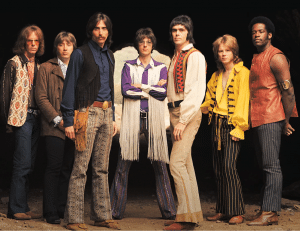
10 Forgotten Rock Songs That Defined the Summer of ’69
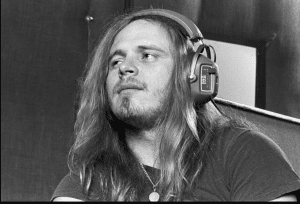
The 9 Most Iconic Voices in Country Rock Music

The 10 Most Underrated Classic Rock Vocalists of the 80s
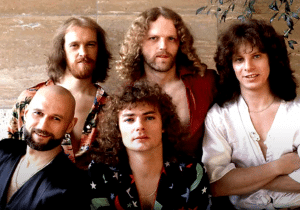
10 Underrated 1970s Rock Bands You Need to Hear
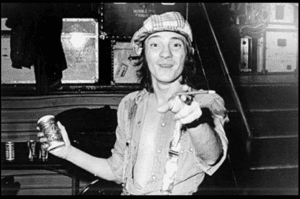
AI Attempts on Steve Marriott’s Legacy Face Backlash…

Cher Confirms Attendance at Rock Hall Induction With…

Legendary Drummer John Barbata of The Turtles and Jefferson…
Premium partners.

Interested in becoming a partner?
Contact us for more info.

© 2024 Society Of Rock
- Terms of Use
- Privacy Policy
- Translation missing: en.general.social.links.spotify
- Translation missing: en.general.social.links.apple
- Translation missing: en.general.social.links.amazon

THE LEGENDARY ROCK BAND JOURNEY CELEBRATING THE 50TH ANNIVERSARY FREEDOM TOUR 2023
October 17, 2022 – One of the most legendary rock bands of all time, JOURNEY, announces the continuation of their highly successful tour with the 50th Anniversary Celebration Freedom Tour 2023 featuring, very special guest TOTO. JOURNEY , Diamond-selling Rock & Roll Hall of Famers will take the stage in 38 cities across North America with their catalog of global chart-topping hits, including "Don't Stop Believin”, "Any Way You Want It", "Faithfully", "Lights" and more.
Presented by AEG Presents, JOURNEY Freedom Tour 2023 begins February 4 in Allentown, PA – making stops in Austin, Montreal, Memphis and more – before wrapping April 25 at the brand new Acrisure Arena in Palm Springs, CA. The 2023 run includes rescheduled dates in Washington DC, Hartford, Toronto and Quebec that were postponed earlier this year due to covid.
Citi is the official card of the JOURNEY 50th ANNIVERSARY Freedom Tour 2023. Citi cardmembers will have access to presale tickets for theU.S. dates beginning Tuesday, October 18th at 10am local time until Thursday, October 20th at 10pm local time through Citi Entertainment (excluding Canada, Washington DC and Hartford shows). For complete presale details visit www.citientertainment.com. A limited number of exclusive VIP Packages are also available. These exceptional offers can include an amazing selection of reserved seated tickets, custom merchandise and much more.
Tickets go on sale to the public Friday, October 21 at 10am local time HERE
JOURNEY features Founder,Neal Schon (lead guitarist, ), Jonathan Cain (keyboards, backing vocals), Arnel Pineda (lead vocals) Jason Derlatka (keyboards, vocals), and Deen Castronovo (drums, vocals) and Todd Jensen (bass). Neal Schon, 3x Hall of Fame inductee: Oklahoma Hall of Fame, Rock & Roll Hall of Fame, Grammy Hall of Fame. Jon Cain is a recipient of two BMI songwriter awards and was inducted into the Rock and Roll Hall of Fame as a member of Journey.
Neal Schon: “We are all thankful and overwhelmed by the success of our Journey Freedom Tour 2022 this year and have added a new run of dates for 2023” says JOURNEY Founder Neal Schon. “We are looking forward to hitting the road again with our very good friends Toto! Come join us for a special evening full of fun and Rockin’ good memories. See you soon Friends.”
Jonathan Cain adds “Excited to perform for our fans as we tour next year with Toto. The combined hits of both bands represent a couple of decades of excellence that have become a soundtrack for people’s lives. The music of Journey along with the music of Toto is an example of “certain music” during “uncertain times”.
Very special guest TOTO, who have collectively streamed more than 3.3 billion plays on Spotify alone based on hits including “Rosanna”, “Africa” and “Hold the Line”, will join JOURNEY on all dates.
TOTO’s Steve Lukather shares, “'On behalf of myself and the band, we are very honored and excited to do this tour with our old and dear friends JOURNEY. Gonna be a great night of music, and as all the guys are lifelong friends... a blast off stage as well.”
FREEDOM TOUR 2023 DATES
February 4 Allentown, PA PPL Center
February 5 Charlottesville, VA John Paul Jones Arena
February 8 Savannah, GA Enmarket Arena
February 10 Columbia, SC Colonial Life Arena
February 11 Greensboro, NC Greensboro Coliseum
February 14 Lexington, KY Rupp Arena
February 17 Knoxville, TN Thompson-Boling Arena
February 19 Bossier City, LA Brookshire Grocery Arena
February 22 Austin, TX Moody Center
February 23 Lafayette, LA Cajundome
February 26 Jacksonville, FL Vystar Veterans Memorial Arena
March 1* Washington, DC Capital One Arena
March 3 State College, PA Bryce Jordan Center
March 4* Hartford, CT XL Center
March 8 Montreal, QC Bell Centre
March 9* Quebec, QC Videotron Centre
March 12* Toronto, ON Scotiabank Arena
March 13 Ottawa, ON Canadian Tire Centre
March 16 Buffalo, NY KeyBank Center
March 17 Atlantic City, NJ Boardwalk Hall
March 20 Champaign, IL State Farm Center
March 21 Moline, IL Vibrant Arena at The MARK
March 24 Sioux Falls, SD Denny Sanford PREMIER Center
March 25 Lincoln, NE Pinnacle Bank Arena
March 28 Des Moines, IA Wells Fargo Arena
March 31 Tulsa, OK BOK Center
April 1 Memphis, TN FedExForum
April 4 San Antonio, TX AT&T Center
April 7 Springfield, MO Great Southern Bank Arena
April 8 Wichita, KS INTRUST Bank Arena
April 11 Casper, WY Ford Wyoming Center
April 13 Boise, ID ExtraMile Arena
April 14 Spokane, WA Spokane Arena
April 17 Eugene, OR Matthew Knight Arena
April 19 Stockton, CA Stockton Arena
April 22 Bakersfield, CA Mechanics Bank Arena
April 23 Fresno, CA SaveMart Center
April 25 Palm Springs, CA Acrisure Arena
*Rescheduled date. ON SALE NOW.
ABOUT JOURNEY
Since the group's formation in 1973, JOURNEY has earned 19 top 40 singles, 25 gold and platinum albums, and has sold over 100 million albums globally. Their "Greatest Hits" album is certified 15 times-platinum, making JOURNEY one of the few bands to ever have been diamond-certified, and their song "Don't Stop Believin'" has been streamed over one billion times alone.
JOURNEY was inducted into the Rock And Roll Hall Of Fame in 2017, and 2018's co-headlining tour with DEF LEPPARD was the band's most successful tour to date, landing them in the Top 10 year-end touring chart with more than 1 million tickets sold, and earning them the prestigious Billboard "Legends Of Live" touring award. March 2019 saw the release of "Escape & Frontiers Live In Japan", a live DVD/CD set from their concert at the Budokan in Tokyo featuring the band's first-ever performances of the albums "Escape" and "Frontiers" in their entirety. JOURNEY has also received a star on the Hollywood Walk Of Fame and were inducted into the Hollywood Bowl Hall Of Fame. Additionally, the band is the subject of the award-winning documentary "Don't Stop Believin': Everyman's Journey" about the band's resurgence upon adding Arnel Pineda as lead singer after JOURNEY Founder, Neal Schon discovered the Philippines native on YouTube.
The members of TOTO are celebrating an accomplishment few bands have achieved in the modern era. Cumulative streams of the ensemble’s repertoire
now exceed 3 billion plays. Amongst the most listened to recordings, “Africa” accounts for over one billion streams at Spotify alone. This year the song was recertified by the RIAA 8X Platinum.
Over the past decade, the band has had a major renaissance in popularity like few bands at this point in their career. The audience is truly multi-generational, becoming younger with each passing year. Joining Steve Lukather and Joseph Williams are band members bassist John Pierce (Huey Lewis and The News), drummer Robert “Sput” Searight (Ghost-Note, Founding member Snarky Puppy, Snoop Dogg), keyboardist Dominique “Xavier” Taplin (Prince, Ghost-Note), multi-instrumentalist / vocalist Warren Ham (Ringo Starr) and keyboardist / background vocalist Steve Maggiora,. This line-up marks the fifteenth incarnation of Toto in consideration of band members or sidemen who joined or exited. Individually and collectively, few have had a larger imprint on pop culture than the members of TOTO. The family tree can be heard on an astonishing 5000 albums that together amass a sales history of a half a billion albums. Amongst these recordings, NARAS applauded the performances with hundreds of Grammy nominations.
With now 45+ years together and literally thousands of credits, including the biggest selling album of all time: Michael Jackson’s Thriller, and accolades to their names, TOTO remains one of the top selling touring and recording acts in the world. They are the benchmark by which many artists base their sound and production, and they continue to transcend the standards set by the entire music community, being simply synonymous with musical credibility. They are pop culture and are one of the few 70’s bands that have endured the changing trends and styles continuing to remain relevant.
About AEG Presents
Combining the power of the live event with a focus on true artist development, AEG Presents is a world leader in the music and entertainment industries. Operating across five continents, the company has an unparalleled commitment to artistry, creativity, and community. Its tentpole festivals and multi-day music events — which include the iconic Coachella Valley Music & Arts Festival and the legendary New Orleans Jazz & Heritage Festival alongside British Summer Time at Hyde Park, Stagecoach, Hangout Festival, Electric Forest, and Firefly — continue to set the bar for the live music experience. AEG Presents promotes global tours for artists such as The Rolling Stones, Ed Sheeran, Elton John, Taylor Swift, Celine Dion, Justin Bieber, Kenny Chesney, Paul McCartney, and Katy Perry, in addition to — through its network of clubs, theatres, arenas, stadiums and renowned partner brands such as The Bowery Presents, Concerts West, Frontier Touring, Goldenvoice, Madison House Presents, Marshall Arts,
Messina Touring Group, PromoWest Productions, and Zero Mile Presents — creating and developing an unmatched infrastructure for artist development and audience reach. More information can be found at www.aegpresents.com.
- Choosing a selection results in a full page refresh.
- Opens in a new window.
Start believin': The story of Journey's Infinity album
By 1978, Journey had a loyal muso following but were still looking for their breakthrough. What they needed was a singer would could turn their improvisations into anthems. Cue one Steve Perry...
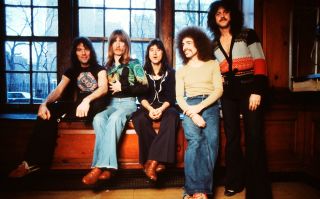
“If I had the chance I would do it all again exactly the same way,” says Steve Perry. “I swear to God. I would not hesitate for a minute.”
Steve Perry is on the phone. The commonly held notion that he’s a dark and sombre recluse couldn’t be further from reality. He’s a veritable ball of energy, dispensing charm and cheer like it was going out of fashion. Before long he’s singing down the phone, and hinting that he wants to stop kicking his heels and put a ‘section’ together (that’s old-school parlance for a band).
We’re hooked up to talk about Journey’s fourth album, 1978’s Infinity. Steve doesn’t give many interviews, but he speaks at length and opens his heart about a record that changed his life, and the course of history for his band;
a record that heralded the arrival of one of the greatest voices of our time, and set Journey on a crash course for superstardom that would ultimately result in their 1981 anthem Don’t Stop Believin’ becoming, in 2009, the best-selling song from the 20th century on iTunes (currently seven million downloads and counting).
All the facts and figures in the Journey story complete a cluster of astonishing accomplishments which are the envy of the music industry. Achievements that, in today’s music marketplace, would be almost impossible to duplicate. For a good 12 years, Journey took position at the very top of the food chain, releasing album after album of instantly recognisable songs all embellished with clear-cut hooks and melodies to die for.
These are records that have stood the test of time, and because of the musicianship inherent in each and every song they have never sounded dated. In many ways, then, Journey were not only pioneers of a style but they were also uniquely aloof – in a league of their own and a world away from the processed, hard-on-the-ears clamour of similar-sounding acts trying to carve out a slice of the same market.
When all is said and done, it was Steve Perry’s presence that really cemented the band’s reputation. Prior to his arrival Journey had been a fairly inconspicuous and mainly instrumental fusion outfit, looking to muscle in on the jazz-rock scene perpetrated by the likes of Weather Report and the Mahavisnu Orchestra.
Classic Rock Newsletter
Sign up below to get the latest from Classic Rock, plus exclusive special offers, direct to your inbox!
Great players, Journey’s early style and meticulous arrangements would, inevitably, limit their appeal unless radical changes were implemented. Their sound had attracted stellar critical reviews but, as a commercial entity, they were stuck in a rut. Not surprisingly, at the behest of their label, Columbia, changes needed to be made, a radical remodelling of the band was demanded to expand their appeal.
Infinity marked Perry’s initiation into the world of professional recording, a milestone in contemporary aural acrobatics. Within the confinement of 10 songs he effortlessly switched from breezy improvisation ( La Do Da ) to epic bombast ( Wheel In The Sky ), providing a template from which future creative diamonds would emerge, forever cementing the appeal of Journey and securing his place in rock’s vocal Hall Of Fame.
- Steve Perry on Infinity, track by track
- Journey’s Cain says it’s time for band to put Neal Schon spat behind them
- Def Leppard and Journey announce massive 58-date North American tour
Unlike the brusque delivery of British blues-belters such as Coverdale and Rodgers, Perry’s reference points evolved from diverse and somewhat unexpected sources, including the sweet soul sounds of Sam Cooke and Smokey Robinson.
Born in California in 1949, Steven Ray Perry was of Portuguese extraction. The family’s original name of Perrera was quickly anglicised to Perry when the family had entered the US, to disguise the fact that they were European immigrants (a common policy back then to improve employment opportunities). Growing up, his epiphany moment was hearing the Sam Cooke song Cupid on the radio while riding in his mother’s car. From that moment on, becoming a musician was all he dreamed of.
By his teens, Perry was a veteran of several garage bands, singing and drumming with names such as The Nocturnes, Dollar Bills, Ice (also featuring future producer Scott Matthews) and The Sullies. He even joined a Toronto-based unit called Privilege and toured Canada.
“They were a 12-piece brass group that had played in my home town near Fresno,” says Perry. “I was so blown away by how amazing they were I kept in touch with the guitar player, one of two brothers, Andy and Harry Krawchuk, and they hired me for a few months. I toured Canada with them – they were a very high-end covers band.”
By the mid 70s, Perry focused all his energies upon infiltrating the music business and moved to Los Angeles, where he formed a band called Pieces alongside experienced musicians like Cactus/Beck Bogert & Appice bassist Tim Bogert, guitarist Tim Denver Cross and drummer Eddie Tuduri. Sadly no deal was forthcoming. Bogert and Tuduri then moved to the UK to join British prog rockers Boxer.
In order to support himself, Steve took a gig as a second engineer at Crystal Studios while piecing together his next outfit, called Alien Project (the group occasionally switched to the moniker of Street Talk, which Steve later used for the title of first solo album). It was this unit that caught the ear of a couple of labels, including Chrysalis and Columbia. The latter’s A&R man, Michael Dilbeck, was hot to sign them.
The group featured drummer Craig Krampf who would later go on to become an in-demand session musician.
“Craig had some contacts in the business,” says Steve, “enough where he could pick up the telephone and call them. He was really good at hustling and got us into Chrysalis and Columbia. Michael Dilbeck was one of the Columbia people who heard Alien Project and liked it. He talked with Don Ellis who was running the West Coast office. They were thinking of signing the band.
“Back in those days, the sweetest thing that could happen was signing to a record label and making a record – that was the pathway of dreams for all of us. Michael liked the band, but I must say the demo got kind of shelved a little bit, meaning he liked it but wasn’t really moved to sign us right away. So we were kind of vacillating, thinking should we go back to Chrysalis who had been pretty excited. Then the next thing that happened was, someone at Columbia decided to go around Michael and send my demo tape to Herbie Herbert, Journey’s manager, in San Francisco.”
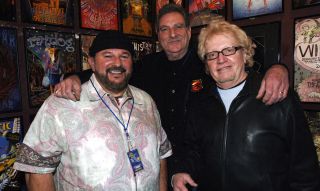
It’s impossible to talk about Journey without the towering presence of their manager Herbie Herbert, a bear of a man with a personality and reputation that, at times, has almost seemed to eclipse (pun intended) the band. Think Peter Grant, if he weren’t quite so intimidating and wasn’t surrounded by henchmen with fists at the ready. Herbie loved music and loved Journey. He dedicated his life to their needs and to the advancement of their career. He had a vision and nobody was gonna fuck with it, and recruiting a vocalist to the group was paramount to his plan.
In Steve Perry, Herbert had found the proverbial needle in the haystack – a vocalist with unlimited range, unique delivery and looks that killed. The consummate frontman, in fact. There is every reason to believe that Perry singlehandedly rescued Journey from interminable underachievement.
“This is where its gets complex,” Steve says, of his initial meeting with Herbert. “Herbie had already heard my name. I was mentioned to him by one of his team, Jackie Villanueva. Jackie had a friend in Frisco by the name of Larry Luciano who, as it happens, was a childhood friend of mine. We had grown up together. Larry had moved up there and become friends with Jackie and the Santana clan. That’s when he and Larry became friends with Herbie.
“Larry told him that he had a cousin called Steve Perry and that I was a pretty good singer and he should check me out. That never came to fruition until the guy at Columbia sent the Alien Project demo tape to Herbie, who saw the name and thought, ‘Steve Perry… Hmmm… Larry’s cousin?’ And of course it was. Then Herbie called me up and said, ‘I love the way you sing, I love what you’re doing and I love the band.’”
However, this budding relationship between Herbert and Perry was suddenly derailed due to the tragic death of Alien Project’s bassist Richard Micheals Haddad, who was killed in an automobile accident on the July 4th weekend. The rest of the band felt like the rug had been pulled from under their feet.
“We were due to resume talks with the labels after that weekend but, of course, it never happened,” says Perry. “I started to pack it in and called my mom to say, ‘I’m coming back home.’ It felt like the closer I got to achieving my dream, the bigger something in my life would say ‘no’. At that point I’d never been so close to someone who had died and I thought, ‘I’m not supposed to do this.’
"I was so distraught and knocked back by it all. But my mother said, no, don’t give up – something will happen. And that’s when I got a telephone call from Don Ellis, who said, ‘I’m sorry to hear about your bass player, but Herbie Herbert has your tape and he loved it. We have Journey on Columbia and we’d love you to be the singer of that band. What do you think about it?’
“I had seen Journey come to town and play many times in LA and I knew that my voice with Neal Schon’s guitar would be like salt and pepper.
"I knew that if I could ever work with him that would be a dream. It was Neal who really attracted me to that set up.”
Journey’s origins go right back to the beginning of the 70s, with the band members based in San Francisco, the centre of hippy counterculture. Keyboard player Gregg Rolie was a founding member of Santana, immortalised by the group’s stunning appearance at the Woodstock festival. The footage of Rolie trashing the living daylights out of his organ during Soul Sacrifice became iconic.
Guitar prodigy Neal Schon was also cooking up a name for himself in the Bay Area, not only as another alumni of Santana but also by working his way through a number of musical cabals, including Latin rockers Azteca and the Golden Gate Rhythm Section. Joining Journey on bass was Ross Valory and second guitarist George Tickner, both of whom were from the curiously named Frumious Bandersnatch. The band’s first drummer was Prairie Prince from fellow SF band The Tubes, but he was quickly replaced by British ex-pat Aynsley Dunbar, who had moved to the US to play with Frank Zappa’s Mothers Of Invention.
Journey’s interest in experimental jazz-fusion was confirmed on their self-titled debut album issued in 1975. A classy work, the album resonates with a surety beyond their recent formation, all players coming across as both fluid and experienced. Neal Schon in particular rips up his fretboard like combination of Jeff Beck and Robert Fripp. Check out the seven-minute long Kahoutek where he trades call-and-response licks with Gregg Rolie.
Surprisingly for such complex music, the album sold moderately well, reaching No.138 on the Billboard chart. After George Tickner bailed out of the band, their next two albums – 1976’s Look Into The Future and 1977’s Next – repeated the pattern, with Gregg Rolie making a concerted effort to deliver reasonably effective vocals atop what was clearly a jazz-fusion fanfaronade.
Despite the concerted efforts of both Columbia Records and Herbie Herbert, it was clear that Journey had reached a sales ceiling. They could continue no further in an upward trajectory unless major changes were implemented. Effectively this meant adding a proper vocalist/frontman and modifying the musical direction. It was a bitter pill to swallow but the band took it on the chin and cast their net to see what was possible.
They settled on Californian Robert Fleischman, who teamed up with the band in June 1977, at the request of label president Bruce Lundvall, who asked Robert to fly to San Francisco and see the band. Fleischman rapidly assimilated with his new bandmates, co-writing a handful of songs, three of which – Wheel In The Sky, Anytime and Winds Of March – would later surface on Infinity . Pretty much an unknown, Fleischman was, at one point, in the running to replace Peter Gabriel in Genesis for their A Trick Of The Tail album, a move scuppered when Phil Collins made a last-minute decision to step up to the microphone.
Things were moving swiftly – if not completely smoothly – when, as previously mentioned, Steve Perry’s name entered the frame. Fleischman had been out on the road with Journey during the summer, supporting Emerson, Lake & Palmer, and matters had progressed to the point where it was understood by all that Robert was their new vocalist. Behind the scenes, however, Robert had apparently been ruffling feathers. Herbie was seemingly concerned that Fleischman was unwilling to relinquish his previous manager, well-known US concert promoter Barry Fey. A reputed incident where Robert allegedly refused to go onstage unless the band played newly written material may not have helped matters either.
By now Herbie and Columbia were coming to the same opinion: that Steve Perry would be the better option for Journey frontman. Matters accelerated when Herbie asked Steve to go out on the road with the band to get to know each other. Fleischman was unaware of his diminishing status within the set up, which resulted in an uncomfortable situation. Perry’s presence in the Journey camp was explained by passing him off as Jackie Villanueva’s Portuguese cousin.
“That really only happened one time,” says Perry. “I think it was when they were playing a show at Long Beach Arena, and I don’t think Robert was actually performing with the band – he was doing soundchecks with them. I think they had pretty much told him he was going to be the singer. I was also told that internally they were conflicted about it. I said to John Villanueva [brother of Jackie, and also part of Herbie’s management team] at the Oakland Coliseum,
‘Do you think this could really happen?’ And he said ‘yes’. So I was hanging around, waiting for my opportunity.
“Actually, it should be pointed out – and I only found this out a few years later – that the label had told the band that if they didn’t get a singer they were going to drop them.”
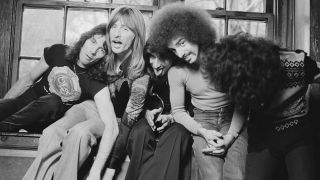
Gregg Rolie has some further insight.
“At the time Neal and I were looking for someone with more of an edge, but Herbie brought us Steve Perry,” he says. “We thought that he was a bit of a crooner and we were looking in a different direction. Robert is a great singer, but there was a lot of politics with the record company and various other things that took place there. They’re two very different singers.
“Steve actually came out on the road with us as my keyboard tech John’s cousin,” confirms Gregg. “We had to make the change, and it was a difficult thing to do, but Robert made a bit of a mistake. We were opening for ELP and he kind of made an ultimatum in Fresno, that he wanted us to play the new songs, but we were just trying to get the band across. We wanted to do the older material because it was more in keeping with the audience.
“He said he wouldn’t go on and that was a mistake on his part. Herbie made the decision right there to fire him. Nothing was really written in stone until that happened. For me, it’s now water under the bridge. I like Robert a lot and I liked what he brought to the situation. Robert has more of an edge but they’re both quality guys. It’s always a struggle.”
Did Steve feel that he had been forced upon the band by the label and Herbie?
“He [Herbie] said in essence, if not the actual words, ‘This is your new singer, deal with it,’” says Perry. “I don’t think I would have been in the band if Herbie had not just said, ‘Look guys, get used to it, keep going and shut the fuck up and write the music.’ Herbie and I have had a lot of artist/management collisions across the years.
"We accomplished so much together but it’s almost normal that artists and management have their issues. That being said, had it not been for Herbie my life would be profoundly different right now. He gave me my chance.”
Gregg: “In the end we made the right choice. Quite frankly, Herbie presented it as ‘this is your new singer’ and we were like, OK. And the fact is, he was absolutely right. Y’know, the proof is there.”
Did the band embrace Steve or were they a little apprehensive?
“You have to remember that the band had recorded three records and toured extensively,” says Perry. “Herbie was very talented in his ability to get that band to open for some very big acts – ELP and Santana – and play big outdoor shows. However, even though that was happening, they weren’t selling enough records. I think they wanted to make it on their own terms, so maybe it was a little weird for them to have to bring in a singer.
“Neal Schon was the guitar prodigy and stood centre stage. The group was built by Herbie around Neal, showing off his virtuosity. They had more of an instrumental Mahavishnu Orchestra thing going on, so it was a transition for them. Sure, I think we had our moments of difficulties with me being the new guy, so for a while I had to sort of walk on thin ice.
“It was a ‘let’s do it and see’ kind of attitude, and I had to prove myself, and I understood that, I really did. I can’t fault them for any hesitancy, because yes, they had a following before I joined them and they had fans out there that wanted the band to be successful as a fusion-based band with Gregg Rolie singing a little bit and Neal, Ross and Aynsley going off into fusion rock.
"When I joined I think they were concerned whether the fans would embrace me. Some did and some didn’t, and it was difficult walking out there. I remember one time we were in Paris I had a [camera] flash cube thrown at me and hit me in the eye.”
Gregg: “Perry wasn’t nervous, and if he was, it sure didn’t show. He knew he was good and he was co-writing a lot of the material. When you co-write, you get pretty comfortable about what you are doing, because it’s customised for you.”
How did Gregg Rolie feet about all this - he had, after all, been the band’s vocalist up until this point?
“I do believe in my heart that Gregg wasn’t that excited about the idea," says Perry, "but on the other hand he was certainly amenable and open-minded. We wrote Feeling That Way together, sharing vocals, and that was cool. In fact that’s the song where I would walk out on stage.”
From Gregg Rolie’s perspective, the situation was clear. “I expected to still sing a couple of songs here and there, but Steve was our lead singer,” he says. “I was stretched pretty thin playing four keyboards, harmonica and singing lead. With Santana I was the lead singer, and with Journey I was lead also. So, I’d never shared vocals before.
"I wanted to continue to do that – I looked at it like, well, The Beatles didn’t do so bad with four singers. So the more the merrier, and I still feel that way about it, but it just slowly got to be less and less.
“Eventually the band got built around Perry,” Gregg continues. “He came in at it slowly and it evolved into this situation where we were writing songs for an actual lead vocalist, which is totally different from where early Journey and Santana came from. Back then we had vocals, but it was really about the solo work and then, slowly, it became more about the lead vocals. It was great for me because I became a much better songwriter.”
It was the beginning of a new chapter for both of them. Blessed with an appealing personality, good looks and a voice from heaven, Perry soon became the focal point of attention. It was now time to unleash his talent in the studio by recording Journey’s fourth and pivotal album, Infinity .
The plan was simple: write songs, hire a producer, select a studio and make an album that would set out their stall for the next 10 years or more. Steve immersed himself in songwriting with all the band members, but mainly with new creative partner Neal Schon, eventually securing co-writing credits on eight of the 10 songs.
Steve and Neal struck up a strong rapport and quickly established a beachhead, strengthening the band’s sound and setting in place a new direction. The emphasis was now on fully formed songs with melodies, hooks and the sort of contemporary buff that made the competition quake in their boots.
The choice of producer was inspired. Band, management and label all agreed on Roy Thomas Baker, the flamboyant British studio craftsman who had worked with some of the most influential rock bands around, including Free and – most importantly – Queen.
After seeing the band live in Santa Monica, RTB (as he is affectionately known) and his trusted engineer Geoff Workman rendezvoused with the band at His Master’s Wheels Studio (formerly Alembic Studios), located on Brady Street in downtown San Francisco.
“They put me in a little apartment on Bay Street,” remembers Steve. “I went to SIR [Studio Instrument Rentals, a well-known rehearsal room] every day and wrote songs with band.
“Then, all of a sudden RTB comes in. We had enormous respect for him, because he’d produced Queen and Free. He was so much fun. The studio [His Master’s Wheels] had an old Neve console and a large tracking room, and the next thing you know he was really giving us a different sound.
“Neal’s doing what we called ‘violin guitars’. Roy had me stack all the vocals on a 40-track machine, and I really enjoyed that process. Also, Geoff Workman was so instrumental that we ended up grabbing him to do one of the records [ Departure ] without RTB.
“We rehearsed the material quite a bit before we recorded it so everything was ready to go before Roy got there. What Roy gave us was the opportunity to try different textures and ideas, but the foundational aspect of the songs and the arrangements were done. He really gave us a direction, and from there the band found itself.”
“I have fond memories of working with Roy and Geoff,” says Gregg. “Roy was very into experimentation, and quite wild in the studio. The multi-tracking of guitars and vocals was a brand new thing for us – all the layering. It was intense work. He created a sound which a lot of the guys didn’t like because it was so edgy, but I happened to dig it.
“Those tracks had a specific sound to them, which is what a good producer does. He was, and still is, a real character. Him and Workman both – they were fun to be around. Workman did a lot of the heavy lifting, inasmuch as getting things done.
“Geoff had worked with Roy for a long time and knew what he wanted. If Roy disappeared for a couple of hours, Geoff just carried on because he knew what they were doing as a team. We used the same team on the next album, Evolution . It got us on the map.”
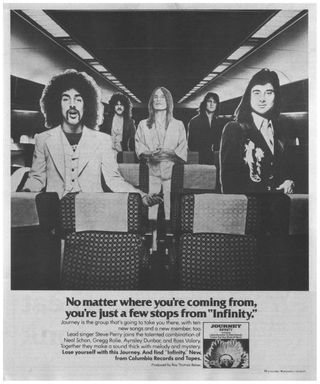
Not surprisingly, the biggest impact was the quality and strength of Steve Perry’s vocals.
“I certainly discovered the depth of multi-tracking, as I never had a chance to work on a 40-track machine before,” says Perry. “I’d never had the ability to do eight root notes and then bounce them to one track, then wipe those and do the eight thirds, wipe those then do eight fifths and eight octaves and so on – and suddenly you have a big stack like on Anytime . When they are layered and smeared tight they just really block up. Roy knew how to do that.”
But despite the good vibes and enthusiastic progress, the glue soon came unstuck when a studio prank backfired…
“One night we went out for sushi and drank a bit of Sake,” laughs Steve. “Roy drank a little bit more Sake than most of us, along with a couple of the road crew. When they got back, Scotty [Ross, roadie] remembered a story about how Roy had once chased Freddie Mercury around the studio with a fire extinguisher.
“So Scotty decided to be funny and grabbed one of the studio extinguishers and chased Roy. Then Roy grabbed an extinguisher to reciprocate and fired it off, but it was one of those dry chemical types. The next thing we knew was that we couldn’t breathe – it had sucked the oxygen right out of the room and we couldn’t see in front of us for the smoke. So we ran outside thinking, ‘Oh my God, what the hell happened there?’ After a while we walked back in and the place looked like it had snowed, everything was covered in white powder. The problem was that the console, the recording tape and everything had this fine, very abrasive powder all over it.
“The Neve console was ruined. We had to quickly remove the tape because the dust would eat the oxide, so we moved to Cherokee Studios in Los Angeles to finish the vocals.”
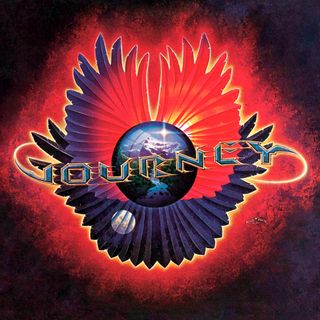
With the album completed, a design makeover followed. The band brought in renowned San Francisco artists Alton Kelley and Stanley Mouse (real name Stanley George Miller). The duo had first hooked up with San Francisco’s counter-cultural doyens the Grateful Dead (designing their album covers) and legendary West Coast promoter Bill Graham (designing his gig posters). During the early 70s they had formed the Mouse Studio, and helped rebrand Journey by designing and standardising their cover art, including Infinity’s colourful flaming wings. The pair also came up with a Journey logo.
Says Perry: “Bruce Lundvall was the president of Columbia at the time, and he quipped that, in order for us to make another record with me singing, we would have to sell one million units. Hence the reason we stayed on the road for 298 shows that year. We started touring in February and didn’t come home for almost a year.
“ Wheel In The Sky was the first single. Neal and I went to a pizza place, and I went over to the jukebox and saw a Wheel In The Sky 45 in that machine – an ecstatic feeling. I didn’t tell Neal, I just put two quarters in, pushed the button and sat down and the song started. Neal looked at me and started laughing. It was a monumental moment. Back then if you were starting to show up in jukeboxes it was a sign that you might be finally starting to happen. My mom had an eight track in her car and she would play the cassette to everybody saying, ‘That’s my Steven.’”
Although the tour emphasised the band’s growing stature, it also highlighted that while Aynsley Dunbar was an exceptional rhythm king, he was perhaps too complex for the way Journey’s music was developing.
“Van Halen were the opening act on the tour,” remembers Steve. “They were a brand new band back then. We were doing 3,000-seat auditoriums and they were killing us every night. It was eye-opening. We were keeping up with them, but they were certainly making us be a better band. They were so musically simple.
“Well, I was a drummer before becoming a singer and one of the things about being a drummer is that I’m kind of hard on other drummers. Foundationally you can have a really great band, but if the drummer doesn’t measure up you’re not going to do very well. But if you have a mediocre band and a great drummer you’re going to do better. So we’d do soundchecks and sometimes Aynsley might not be there or be off doing something like radio promotion and I would do soundcheck for him – set his drums up and play a few songs. It started to be apparent to Neal and to myself that the band sounded different with me because I’m a slamming R&B-style drummer, as opposed to a jazz-fusion drummer like Aynsley.
“Aynsley’s style had been perfect up to when the band changed style. As the music evolved, we started to work up some of our new ideas with me playing drums, and they didn’t sound as good with Aynsley playing them. So we toyed with that for a while, but occasionally we kept being reminded about it while jamming new ideas for the follow-up record. And then we saw Steve Smith playing drums with Ronnie Montrose, who was also one of our support bands, and we thought, ‘Help, what do we do now? Because this guy sounds like the cat.’ We started hanging out a lot – the next thing is we made a switch.”
Journey’s run of success continued with their follow-up albums, from Evolution through to blockbusters such as Escape, Frontiers and Raised On Radio .
Their continued uphill trajectory was an unprecedented triumph, propelling the band into increasingly larger arenas and stadiums, right the way through to the late 80s, before they implemented a (theoretically) indefinite and somewhat strained hiatus. With hindsight, the appointment of Steve Perry and the creation of the Infinity album was one of the pivotal moments in the development of modern rock.
“I liked the songs, I liked the edge and I liked the dual vocal stuff,” reflects Gregg Rolie. “The band had a lot of colour to it and I think we could have explored more of that. Infinity for me personally was a big change; writing songs for singing rather than writing songs for playing. The addition of harmonies and multi-track vocals… we’d never sung harmonies like that before.
“Also, the songs were great: Patiently, Winds Of March, Lights … Later it started going away from where I thought it should have been, but I’m only one member of the band so you’ve gotta roll with it. On Infinity there was still solo and instrumental work influencing how it sounded – it still had that vibe of being alive. It was always powerful. We actually carried that edge into the Evolution album.”
“If I had the chance I would do it all again exactly the same way,” says Steve Perry in conclusion. “I swear to God. I would not hesitate for a minute.”
Journey are on tour now. This article was first published in Classic Rock presents AOR, issue 11
Derek’s lifelong love of metal goes back to the ’70s when he became a UK underground legend for sharing tapes of the most obscure American bands. After many years championing acts as a writer for Kerrang! , Derek moved to New York and worked in A&R at Atco Records, signing a number of great acts including the multi-platinum Pantera and Dream Theater. He moved back to the UK and in 2006 started Rock Candy Records, which specialises in reissues of rock and metal albums from the 1970s and 1980s.
“You don’t need to spend 10 years to make an album”: Ex-Tool bassist Paul D’Amour slams band’s songwriting process
Watch Ozzy Osbourne, Tony Iommi and Phil Collins serenade the Queen with Black Sabbath’s Paranoid in 2002
"It sounds like someone trying to sound like someone trying to sound like Steve Marriott": Rock legends line up to protest release of AI-assisted Humble Pie recordings
Most Popular
- Share full article
Advertisement
Supported by
Steve Perry Walked Away From Journey. A Promise Finally Ended His Silence.

By Alex Pappademas
- Sept. 5, 2018
MALIBU, Calif. — On the back patio of a Greek restaurant, a white-haired man making his way to the exit paused for a second look at one of his fellow diners, a man with a prominent nose who wore his dark hair in a modest pompadour.
“You look a lot like Steve Perry,” the white-haired man said.
“I used to be Steve Perry,” Steve Perry said.
This is how it goes when you are Steve Perry. Everyone is excited to see you, and no one can quite believe it. Everyone wants to know where you’ve been.
In 1977, an ambitious but middlingly successful San Francisco jazz-rock band called Journey went looking for a new lead singer and found Mr. Perry, then a 28-year-old veteran of many unsigned bands. Mr. Perry and the band’s lead guitarist and co-founder, Neal Schon, began writing concise, uplifting hard rock songs that showcased Mr. Perry’s clean, powerful alto, as operatic an instrument as pop has ever seen. This new incarnation of Journey produced a string of hit singles, released eight multiplatinum albums and toured relentlessly — so relentlessly that in 1987, a road-worn Mr. Perry took a hiatus, effectively dissolving the band he’d helped make famous.
He did not disappear completely — there was a solo album in 1994, followed in 1996 by a Journey reunion album, “Trial by Fire.” But it wasn’t long before Mr. Perry walked away again, from Journey and from the spotlight. With his forthcoming album, “Traces,” due in early October, he’s breaking 20 years of radio silence.
Over the course of a long midafternoon lunch — well-done souvlaki, hold all the starches — Mr. Perry, now 69, explained why he left, and why he’s returned. He spoke of loving, and losing and opening himself to being loved again, including by people he’s never met, who know him only as a voice from the Top 40 past.
And when he detailed the personal tragedy that moved him to make music again, he talked about it in language as earnest and emotional as any Journey song:
“I thought I had a pretty good heart,” he said, “but a heart isn’t really complete until it’s completely broken.”
IN ITS ’80S heyday, Journey was a commercial powerhouse and a critical piñata. With Mr. Perry up front, slinging high notes like Frisbees into the stratosphere, Journey quickly became not just big but huge . When few public figures aside from Pac-Man and Donkey Kong had their own video game, Journey had two. The offices of the group’s management company received 600 pieces of Journey fan mail per day.
The group toured hard for nine years. Gradually, that punishing schedule began to take a toll on Journey’s lead singer.
“I never had any nodules or anything, and I never had polyps,” Mr. Perry said, referring to the state of his vocal cords. He looked around for some wood to knock, then settled for his own skull. The pain, he said, was more spiritual than physical.
[ Never miss a pop music story: Sign up for our weekly newsletter, Louder. ]
As a vocalist, Mr. Perry explained, “your instrument is you. It’s not just your throat, it’s you . If you’re burnt out, if you’re depressed, if you’re feeling weary and lost and paranoid, you’re a mess.”
“Frankly,” Mr. Schon said in a phone interview, “I don’t know how he lasted as long as he did without feeling burned out. He was so good, doing things that nobody else could do.”
On Feb. 1, 1987, Mr. Perry performed one last show with Journey, in Anchorage. Then he went home.
Mr. Perry was born in Hanford, Calif., in the San Joaquin Valley, about 45 minutes south of Fresno. His parents, who were both Portuguese immigrants, divorced when he was 8, and Mr. Perry and his mother moved in next door to her parents’. “I became invisible, emotionally,” Mr. Perry said. “And there were places I used to hide, to feel comfortable, to protect myself.”
Sometimes he’d crawl into a corner of his grandparents’ garage with a blanket and a flashlight. But he also found refuge in music. “I could get lost in these 45s that I had,” Mr. Perry said. “It turned on a passion for music in me that saved my life.”
As a teen, Mr. Perry moved to Lemoore, Calif., where he enjoyed an archetypally idyllic West Coast adolescence: “A lot of my writing, to this day, is based on my emotional attachment to Lemoore High School.”
There he discovered the Beatles and the Beach Boys, went on parked-car dates by the San Joaquin Valley’s many irrigation canals, and experienced a feeling of “freedom and teenage emotion and contact with the world” that he’s never forgotten. Even a song like “No Erasin’,” the buoyant lead single from his new LP has that down-by-the-old-canal spirit, Mr. Perry said.
And after he left Journey, it was Lemoore that Mr. Perry returned to, hoping to rediscover the person he’d been before subsuming his identity within an internationally famous rock band. In the beginning, he couldn’t even bear to listen to music on the radio: “A little PTSD, I think.”
Eventually, in 1994, he made that solo album, “For the Love of Strange Medicine,” and sported a windblown near-mullet and a dazed expression on the cover. The reviews were respectful, and the album wasn’t a flop. With alternative rock at its cultural peak, Mr. Perry was a man without a context — which suited him just fine.
“I was glad,” he said, “that I was just allowed to step back and go, O.K. — this is a good time to go ride my Harley.”
JOURNEY STAYED REUNITED after Mr. Perry left for the second time in 1997. Since December 2007, its frontman has been Arnel Pineda, a former cover-band vocalist from Manila, Philippines, who Mr. Schon discovered via YouTube . When Journey was inducted into the Rock & Roll Hall of Fame last April, Mr. Pineda sang the 1981 anthem “Don’t Stop Believin’,” not Mr. Perry. “I’m not in the band,” he said flatly, adding, “It’s Arnel’s gig — singers have to stick together.”
Around the time Mr. Pineda joined the band, something strange had happened — after being radioactively unhip for decades, Journey had crept back into the zeitgeist. David Chase used “Don’t Stop Believin’” to nerve-racking effect in the last scene of the 2007 series finale of “The Sopranos” ; when Mr. Perry refused to sign off on the show’s use of the song until he was told how it would be used, he briefly became one of the few people in America who knew in advance how the show ended.
“Don’t Stop Believin’” became a kind of pop standard, covered by everyone from the cast of “Glee” to the avant-shred guitarist Marnie Stern . Decades after they’d gone their separate ways, Journey and Mr. Perry found themselves discovering fans they never knew they had.
Mark Oliver Everett, the Los Angeles singer-songwriter who performs with his band Eels under the stage name E, was not one of them, at first.
“When I was young, living in Virginia,” Mr. Everett said, “Journey was always on the radio, and I wasn’t into it.”
So although Mr. Perry became a regular at Eels shows beginning around 2003, it took Mr. Everett five years to invite him backstage. He’d become acquainted with Patty Jenkins, the film director, who’d befriended Mr. Perry after contacting him for permission to use “Don’t Stop Believin’” in her 2003 film “Monster.” (“When he literally showed up on the mixing stage the next day and pulled up a chair next to me, saying, ‘Hey I really love your movie. How can I help you?’ it was the beginning of one of the greatest friendships of my life,” Ms. Jenkins wrote in an email.) Over lunch, Ms. Jenkins lobbied Mr. Everett to meet Mr. Perry.
They hit it off immediately. “At that time,” Mr. Everett said, “we had a very serious Eels croquet game in my backyard every Sunday.” He invited Mr. Perry to attend that week. Before long, Mr. Perry began showing up — uninvited and unannounced, but not unwelcome — at Eels rehearsals.
“They’d always bust my chops,” Mr. Perry said. “Like, ‘Well? Is this the year you come on and sing a couple songs with us?’”
At one point, the Eels guitarist Jeff Lyster managed to bait Mr. Perry into singing Journey’s “Lights” at one of these rehearsals, which Mr. Everett remembers as “this great moment — a guy who’s become like Howard Hughes, and just walked away from it all 25 years ago, and he’s finally doing it again.”
Eventually Mr. Perry decided to sing a few numbers at an Eels show, which would be his first public performance in decades. He made this decision known to the band, Mr. Everett said, not via phone or email but by showing up to tour rehearsals one day carrying his own microphone. “He moves in mysterious ways,” Mr. Everett observed.
For mysterious Steve Perry reasons, Mr. Perry chose to make his long-awaited return to the stage at a 2014 Eels show at the Fitzgerald Theater in St. Paul, Minn. During a surprise encore, he sang three songs, including one of his favorite Eels tunes, whose profane title is rendered on an edited album as “It’s a Monstertrucker.”
“I walked out with no anticipation and they knew me and they responded, and it was really a thrill,” Mr. Perry said. “I missed it so much. I couldn’t believe it’d been so long.”
“It’s a Monstertrucker” is a spare song about struggling to get through a lonely Sunday in someone’s absence. For Mr. Perry, it was not an out-of-nowhere choice.
In 2011, Ms. Jenkins directed one segment of “Five,” a Lifetime anthology film about women and breast cancer. Mr. Perry visited her one day in the cutting room while she was at work on a scene featuring real cancer patients as extras. A woman named Kellie Nash caught Mr. Perry’s eye. Instantly smitten, he asked Ms. Jenkins if she would introduce them by email.
“And she says ‘O.K., I’ll send the email,’ ” Mr. Perry said, “but there’s one thing I should tell you first. She was in remission, but it came back, and it’s in her bones and her lungs. She’s fighting for her life.”
“My head said, ‘I don’t know,’ ” Mr. Perry remembered, “but my heart said, ‘Send the email.’”
“That was extremely unlike Steve, as he is just not that guy,” Ms. Jenkins said. “I have never seen him hit on, or even show interest in anyone before. He was always so conservative about opening up to anyone.”
A few weeks later, Ms. Nash and Mr. Perry connected by phone and ended up talking for nearly five hours. Their friendship soon blossomed into romance. Mr. Perry described Ms. Nash as the greatest thing that ever happened to him.
“I was loved by a lot of people, but I didn’t really feel it as much as I did when Kellie said it,” he said. “Because she’s got better things to do than waste her time with those words.”
They were together for a year and a half. They made each other laugh and talked each other to sleep at night.
In the fall of 2012, Ms. Nash began experiencing headaches. An MRI revealed that the cancer had spread to her brain. One night not long afterward, Ms. Nash asked Mr. Perry to make her a promise.
“She said, ‘If something were to happen to me, promise me you won’t go back into isolation,’ ” Mr. Perry said, “because that would make this all for naught.”
At this point in the story, Mr. Perry asked for a moment and began to cry.
Ms. Nash died on Dec. 14, 2012, at 40. Two years later, Mr. Perry showed up to Eels rehearsal with his own microphone, ready to make good on a promise.
TIME HAS ADDED a husky edge to Mr. Perry’s angelic voice; on “Traces,” he hits some trembling high notes that bring to mind the otherworldly jazz countertenor “Little” Jimmy Scott. The tone suits the songs, which occasionally rock, but mostly feel close to their origins as solo demos Mr. Perry cut with only loops and click tracks backing him up.
The idea that the album might kick-start a comeback for Mr. Perry is one that its maker inevitably has to hem and haw about.
“I don’t even know if ‘coming back’ is a good word,” he said. “I’m in touch with the honest emotion, the love of the music I’ve just made. And all the neurosis that used to come with it, too. All the fears and joys. I had to put my arms around all of it. And walking back into it has been an experience, of all of the above.”
Find the Right Soundtrack for You
Trying to expand your musical horizons take a listen to something new..
Cass Elliot ’s death spawned a horrible myth. She deserves better.
Listen to the power and beauty of African guitar greats .
What happens next for Kendrick Lamar and Drake?
He sang “What a Fool Believes.” But Michael McDonald is in on the joke.
Hear 9 of the week’s most notable new songs on the Playlist .

- Songwriter Interviews
- Song Writing
- Fact or Fiction
- They're Playing My Song
- Songfacts Pages
- Songwriting Legends
- Songfacts Podcast
- Amanda Flinner
- Bruce Pollock
- Corey O'Flanagan
- Dan MacIntosh
- Laura Antonelli
- Leslie Michele Derrough
- Maggie Grimason
- Nicole Roberge
- Roger Catlin
- Shawna Ortega
- Stephanie Myers
- Trevor Morelli
Anytime by Journey
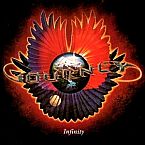
Songfacts®:
- According to the liner notes of Journey's Time3 compilation, guitarist Neal Schon wrote the chorus lyrics. Said Schon: "(keyboard player) Gregg Rolie was doing Bing Crosby - you know, 'ooh, ooh.' And I'd listened to lots of Beatles records when I was a kid, so I just went 'Anytime that you want me.' It came out real easy in rehearsal." Rolie supplied the lead vocals, and the song was released as the second single from Infinity .
- The band wrote this song before Steve Perry joined; it's credited to Robert Fleischman, Gregg Rolie, Neal Schon, Roger Silver and Ross Valory. Fleischman was with the band just a short time, and did not perform on any of their albums. Roger Silver is a San Francisco-based poet who contributed lyrics to the song.
- This song reached just #83 in the US, but was proof of what Steve Perry could bring to the band. Journey released three albums before he arrived, none of which produced a chart hit. The first Infinity single, " Wheel In The Sky ," rose to #57. Perry didn't write that one either, but it was clear he could deliver a distinct vocal that popped on the airwaves. The next single after "Anytime" was " Lights ," which Perry co-wrote. That one went to #68 and became a Journey classic.
- More songs from Journey
- More songs from 1978
- Lyrics to Anytime
- Journey Artistfacts
Comments: 3
- Kaye from Alabama Most of the the lead singers for Journey since and including Steve Perry, have 'blown out' their voices. There's very few men, and women that can continue to sing with such a wide range for 300+ gigs a year, practice, warm ups, and recording. Freddie Mercury, if he were still with us ( but, his range had a lot to do with cultural, and religious exposure), and Micky Thomas best known for Jefferson Starship, now just Starship, and his first hit, Fooled Around and Fell in love, still has the range and power he had in the '70 when he was playing with my husband in local bands in N. Florida, S. Georgia. To name 2. Pat Benetar, classically trained, Ann Wilson, classically trained. Now, look up Tommy Shaw's version of 'Open Arms' That is on a copulation tribute album. You might just be impressed. Digging ditches is damn hard dirty work. Going on stage, whether you feel like it or not, cold, flu, stomach virus, migraine headache, strep throat, And performing like you feel absolutely wonderful and so very happy to be there, when you would rather be lying on the stage trying not to die, is the hardest job in the world. I work as a gardener, landscaping, basically ditch digging, and I am no where near exhausted, sick, and basically insane as I was when touring and singing with several well known bands and performers. I was a trained lyric soprano that learned to sing rock and some pop and country. Now my range is quite a bit lower than it was.
- Jim from Long Beach, Ca Gregg Rolie, The American Paul Carrack, he sings on hits for other bands(Journey/Santana) but remains faceless..Great voice and keyboard player..
- Dodge from Casper, Wy Gregg Rolie, though somehow not the most recognizable face of the two bands, founded and was the original singer for both supergroups Santana and Journey. He is the co-lead vocalist here, though he is the clear and recognizable singer on the timeless Santana smash Black Magic Woman.
More Songfacts:
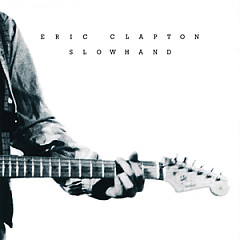
Wonderful Tonight Eric Clapton
Eric Clapton wrote "Wonderful Tonight" while waiting for his girlfriend, Pattie Boyd, to get ready for a night out. By the time she was ready, he had written the song.
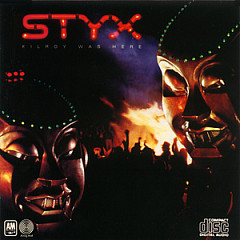
Mr. Roboto Styx
"Mr. Roboto" by Styx was written by their keyboard player, Dennis DeYoung, who used Japanese words and imagery to create an allegory about censorship.
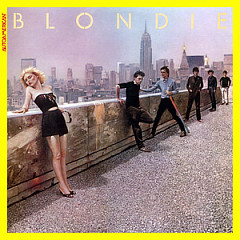
Rapture Blondie
The first #1 hit with a rap was "Rapture" by Blondie in 1980. Debbie Harry's rhymes left lots of room for improvement.
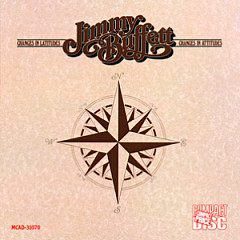
Margaritaville Jimmy Buffett
"Margaritaville" is a state of mind, but it's most associated with Key West, Florida, where Jimmy Buffett moved when he was 24.
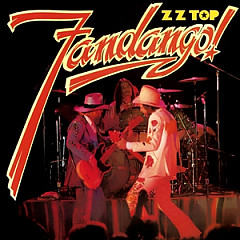
Tush ZZ Top
"Tush" doesn't have to refer to anatomy, according to ZZ Top. It's a word that also means "lavish."
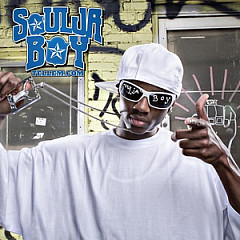
Crank That (Soulja Boy) Soulja Boy
"Crank That (Soulja Boy)" was the most successful digital track of 2007 in the US with 2,909,000 downloads. On January 6, 2008 it became the first song ever to sell 3 million digital copies in the States.
Editor's Picks
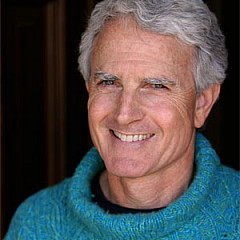
Billy Steinberg - "Like A Virgin" They're Playing My Song
The first of Billy's five #1 hits was the song that propelled Madonna to stardom. You'd think that would get you a backstage pass, wouldn't you?
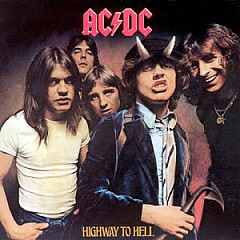
Does Jimmy Page Worship The Devil? A Look at Satanism in Rock Song Writing
We ring the Hell's Bells to see what songs and rockers are sincere in their Satanism, and how much of it is an act.

The Truth Is Out There: A History of Alien Songs Song Writing
The trail runs from flying saucer songs in the '50s, through Bowie, blink-182 and Katy Perry.

Don Felder Songwriter Interviews
Don breaks down "Hotel California" and other songs he wrote as a member of the Eagles. Now we know where the "warm smell of colitas" came from.

American Hits With Foreign Titles Song Writing
What are the biggest US hits with French, Spanish (not "Rico Suave"), Italian, Scottish, Greek, and Japanese titles?
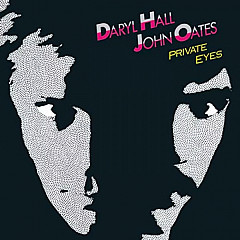
"Private Eyes" - The Story Behind the Song Song Writing
How a goofy detective movie, a disenchanted director and an unlikely songwriter led to one of the biggest hits in pop history.
Songfacts® Newsletter
A monthly update on our latest interviews, stories and added songs
Information
- Terms of Service
- Our Privacy Policy
- Google Privacy Policy
- Songfacts API
- Music History Calendar
- Song Licensing
- Affiliate Disclosure
- Privacy Manager
- X (Twitter)
Contribution
- Message Boards
- Songfacts Writers
©2024 Songfacts, LLC
Gregg Rolie Looks Back on His Days With Santana, Journey, and Ringo Starr
By Andy Greene
Andy Greene
You might not know the name Gregg Rolie, but you definitely know his music. Not only did he sing “Black Magic Woman,” “Evil Ways,” “Oye Como Va,” and all the other early Santana classics as the group’s original lead vocalist, but he went on to form Journey with Santana guitarist Neal Schon. He was their keyboardist and lead singer on the first three albums before Steve Perry took over as frontman in 1978. He then stuck around for the next two years, playing keyboards on massive hits like “Lights,” “Wheel in the Sky,” and “Lovin’, Touchin’, Squeezin’.”
Rolie has made it into the Rock & Roll Hall of Fame twice for his pivotal roles in the history of Journey and Santana, and for the past six years he’s toured with Ringo Starr in his All Starr Band. He’s also just released the new solo disc Sonic Ranch, and he called into Rolling Stone to talk about his long career, the real reason he parted ways with Santana and Journey, and what’s coming next.
Let’s start at the beginning. How did you first meet Carlos Santana? Carlos and I met in a tomato patch. He played at the Fillmore on a Tuesday night, when Bill Graham just let locals on. And a friend of mine, Tom Frasier, saw him and said, “I’m going to go find this guy.” He came to my house and told me that, and I was like, “All right, cool.” He found him working at a hamburger stand called Tick Tock, on Columbia Street in San Francisco, and said, “Do you want to come jam with this guy?”
He came and we played, and of course we were smoking marijuana and stuff. When the cops came, I said, “We have to get out of here.” And all I saw was his ass and his elbows. He was way ahead of us. I was like, “Great idea.” I ran into a tomato patch and waited until the cops left. And that’s how it started with me. I think it was 1968.
How long after that did the band form? 1968 and a half. It just happened. We had this high school buddy Danny Haro and Gus Rodriguez on drums and bass, and [Michael] Carabello was there. Then it grew. We just kept getting new people in. The music that everyone knows has Mike Shrieve on it and Chepito and David Brown and all the rest of us. That’s it.
Editor’s picks
Every awful thing trump has promised to do in a second term, the 250 greatest guitarists of all time, the 500 greatest albums of all time, the 50 worst decisions in movie history.
How many times in your life do you think you’ve been asked about playing Woodstock? Do you think it’s in the thousands by now? [ Laughs ] I can talk about it. It’s the same old story. The fact of the matter is, it started my career. It started all of us. If you were there at that concert, you had a career. After that, it’s what you do with it. Musically, we connected with a generation of people that need to be connected to. That’s kind of it. And it’s gone on from there.
Did you know when you were playing just how hard Carlos was tripping on mescaline? No. I had no idea. As a matter of fact, all I could think was, “Man, he’s having a really hard time tuning up.” That was my thought. I didn’t find out about that for years later. Then I went, “Oh! OK! Now I get it!”
You were totally straight? Other than a beer or two, yeah.
I think it was really the movie that created the legend of the group that will never die. It won’t. It’s totally amazing. When you look back upon what everyone was going through, each individual, but especially Carlos. . . . He is sitting there holding onto his guitar because he was on mescaline. He was like, “God, let me get through this. I’ll never do this again.” Well, he lied. And I’m just playing as hard as I could. Carlos said, “We were floating like kites and Gregg was on the ground holding onto the strings.” All I could tell him was, “Yeah, but I caught up to you.” Pretty soon we were all floating everywhere.
After Woodstock, Santana had a bunch of big radio hits and you sang lead on all of them. Does it irritate you that a lot of people think that Carlos sang them or, at the very least, they don’t even know your name? Not “irritate,” but it confused me. “You’ve got to be kidding me? Have you watched any of the things we’ve done? Have you ever been to a concert?” It’s always the same thing. But look, we picked “Santana” because it was a cool name. It prints well. It emphasized, at the time, what was going on. It was like “The Paul Butterfield Blues Band” or “Allman Brothers.” All of the names were blues-based. And he was kind of the front and center. So we picked it and that’s it. Everyone said he was the leader of the band and he was the guy.
In retrospect, it’s not how that happened. The band was really a band. That’s why it worked so well. Let’s put it this way: Without the 10 percent this guy put in and the 20 percent this guy put in — Carlos and I did 40/40 or whatever — without the rest of it, it wouldn’t have been the music that it is.
After the third album, he wanted to go in a different direction musically. Did you have a different opinion about that? I had a totally different opinion about it. If you’re the Beatles and you want to go to putting horns on your music or doing Rubber Soul or whatever, you can, because you’re the Beatles. . . . But we’re Santana, and to change the complete direction of the music and lose the people you already have, going from the music of Santana III to jazz, basically — I thought it was a mistake and I was right.
Hear the Journey Tune Steve Perry Rerecorded With Steve Lukather's Son
Journey's bassist ross valory opens up about the band's saga — and his adventurous solo album.
But you couldn’t stop it. No. The other point is that personally we were all upside down. Carlos puts it well these days when he says, “We didn’t treat each other too good.” That’s exactly it. It was too much too soon. We had the world by the balls and didn’t realize it. That’s what happened. But talk about having a moment in time? I was so proud of what was created with this. So proud.
Tell me about the day you left. What was your breaking point, where you knew you were done? I don’t like talking about it much, but Carlos made a demand that so-and-so leave the band. But we all did this together. He made demands and, not to say that he was totally wrong, but it was the way he did it. I couldn’t live with it. That’s not what I signed up for. We ended up pretty bad. But the music we created was done by all that fervor. Without it, it probably wouldn’t have happened. I’ve always said, “Hey, you want a good Latin rock band? You better have a Norwegian in it!” [ Laughs ]
What did you do right after leaving the band? I left music completely. I was just like, “I’m done. I want to do something else completely.” So I started a restaurant with my father up in Seattle. Not that it was a bad idea to be in business with my father, but jumping into the restaurant business from the music business is like going from the pan to the fryer. Forget it. It’s horrible. In a nutshell, you need a thousand percent of capacity to make it work because nobody is going to come every night. It was kind of a disaster. At the same time, I learned a ton of stuff. I was really proud to do it with my dad, but it was a bad endeavor. Hey, you win, you lose. That’s how it goes.
How did Journey start? That started right after that. I got a call from Neal [Schon] and Herbie [Herbert]. And Herbie was the mainstay of why that thing worked. They called me up and said, “What are you doing?” I said, “Nothing.” They said they were going to start something called the Golden Gate Rhythm Section. It was basically a band that would play for artists that came to town. That’s what they told me, but within two weeks we were writing songs. It was nonsense. They lied [ laughs ].
Journey toured a lot in those early years and didn’t sell a ton of records. It must have been difficult. Very much so. At the time, when you’re young and you get that gypsy blood and you travel, everything is forgotten. We had a goal. There was a real goal to this of success. We didn’t feel it so much. We did go out for four months at a time, two weeks off, four months at a time, two weeks off. It was just constant and pretty grueling.
How did you hear about them hiring a second singer? I thought that was tremendous because I would no longer have to play four instruments at the same time, harmonica, and sing leads and sing backgrounds. I liked the whole image of what it could become. When [Steve] Perry first came into the fold, Neal and I were like, “I don’t know. This guy is sort of crooning it.” We wanted to rock. But when you look at the end product, we were wrong. At least as far as being successful, he was the guy.
We started writing songs for a singer instead of writing songs for all the solo work and the expertise of playing. By the way, if Journey had come out 10 years ago, we’d be playing the jam circuit. It would be a total different thing because it was energized and cool and different with all the rhythms and soloing and stuff. Then we got into playing it for vocals and it was cool.
A song like “Lights” was a very different kind of thing for you at that point. Did you mind doing softer ballads like that? No. You know what? Let me put it this way. Music is music, and for me, it doesn’t matter. I could go back to Frank Sinatra and go, “Man, that is awesome.” What we did with Journey was the same thing. There was a jam thing with it, but then it got more congruent and more about the vocals and harmonies. I’d never done that. I found it very appealing.
As a matter of fact, to the day, I use those ideas with my own music. It’s maybe not as strong or as many harmonies and triples and all that stuff, but it’s the same attitude. I learned a lot about writing music from Journey and its . . . journey [ laughs ].
So the band takes off. You have huge hits with “Wheel in the Sky” and “Lovin’, Touchin’, Squeezin’,” and then you leave. What happened? I left because I didn’t like my life anymore. I’ve said this a million times and I know there’s people that say, “That’s not the reason.” But I left because I was unhappy with what I was doing in my own life. I loved the management. I loved the music. I loved what we built. I just wasn’t happy, so I had to blow the horn on it and just stop it.
Everyone thinks it was because Perry came in and started singing all the leads. My God! Again, I was spread so thin with all these keyboards parts and singing leads, he was a welcome sight to me. And he could sing like a bird! It wasn’t too hard to figure out. I was never against it. I still wanted to sing, but that kind of fell by the wayside [ laughs ]. That’s another story. That’s kind of it, man. I loved the fact we were going to write something different.
I think those misconceptions come because Departure came out in 1980 and you didn’t sing much. It’s totally wrong! The whole thing is wrong! It doesn’t matter how many times I say this. Maybe you’ll get it right. That’ll be really phenomenal. No matter how many times I tell people very simply: “Here is the deal. I was unhappy. I drank too much. Blah, blah, blah. I didn’t feel like it was for me anymore. And most of all, I wanted to start a family.” And by the way, my family was my best work. It truly is. My son and daughter, my wife, it’s extraordinary. I did the right thing, but it just doesn’t play well with the guys on Facebook [ laughs ].
How did you feel when you left and they just got bigger and bigger and had all those hits? Did you ever have a tiny moment of regret? No. I felt very proud that I helped to build something that went to that extreme. I’ve always felt that way. Yeah, without me doing this, that might never have happened. But it’s not about me. It’s about all of it. It’s a misconception in this business of, “Who does what?” We all did something. I gotta tell you, without manager Herbie Herbert, that shit would not have happened.
You were on a few Santana albums in the 1980s. It seems like you guys became friends again. We’ve been on-and-off friends. That’s the best I can say. I love playing music with him, but then some things he does, I go, “No, I disagree.” Then we grow apart.
Tell me about the band you formed in 1997, Abraxas Pool, which was basically Santana minus Santana. We did that at my house in a little tiny cabin with the smallest amount of equipment. We were all crowded in one room like you did when you were a kid. And in two weeks we had written that music.
I’m sure without Carlos it was hard to get much attention. Yeah. That’s always the case because the name is Santana. And so it’s hard to realize there were other players in the band that made that music happen. Carlos did not do that by himself. And I’d equally say that I didn’t either. It was everybody.
How was the Hall of Fame experience when you got in with Santana? I got the call that I was going to get added to that and went, “That’s very cool, but I’m building a hot rod. Just send me whatever.” I was building a ’32 Ford and got a call from my drummer, Ron Wikso, and he said, “You might want to think this over. A lot of people get Grammy Awards and this and that, but the Rock & Roll Hall of Fame? It’s here to stay.” So I went and I loved it. I had a ball doing it.
You played with Peter Green that night. Yes! Michael Shrieve turned me onto Peter Green way before that. He turned me onto “Black Magic Woman.” I was like, “That is so cool. I can really sing this.” It became a Number Five hit or something. To this day, I sing it the same way, expect with more balls. I’m just older now.
How has the experience of being in Ringo Starr’s All Starr Band been? Without the Beatles, I probably would have been an architect. In high school and college at the time, playing in a band became really cool. It was always in my background to do it. So I connected with these guys to play this. Most of all, I always wanted to play the music I wanted to play, not to copy from someone else. That’s because I can’t. I’m horrible at it. “Where does your finger go? Forget this! I don’t know what chord that is, but it sounds better.”
Getting with Ringo, that’s the first time someone said to me, “We’re doing these songs.” I’m going, “Holy crap. You sure you called the right guy? I don’t do this. I don’t do this!” Seven years later, apparently I do!
What were the first few rehearsals like when you found yourself playing all these Beatles classics with a Beatle? I practiced so hard. I told Mark Rivera, the music director, “Send me the stuff right away. If you don’t send it right away, I’m going to be embarrassed. I don’t know what to do with this. You want me to play organ or piano? There’s no piano on this or organ on that. I don’t know what I’m doing!” So they did and I went into the first rehearsal and my first audition and Ringo showed up and I’m like, “Holy fuck! I’m playing with Ringo Starr! Are you kidding me?”
And for two years I’m going, “Holy fuck! I’m playing with Ringo Starr!” Then one day on a plane we’re all sitting there all relaxed. He’s such a cool man, a beautiful man. I was sitting next to him and we were talking about stuff. I said a couple of things and he said, “You’re finally loosening up!”
What’s funny is that All Starr Bands used to last one summer and then it would be different people the next time out. But he’s kept you around year after year after year. Me and Luke [Steve Lukather]. I can’t say enough about Luke by the way. Beyond his talent, he’s a real good human being. The reason he plays so well is because he’s got that in him. He’s a great human being. And Ringo was just like, “This is really jelling. Why would I change this? This is really working.” Between me and Luke, we can pretty much play anything. I didn’t know that at the time.
You can play Toto songs or Men at Work or Todd Rundgren, or whatever. Yeah. It’s not exactly what was played on the records. It’s like, “OK, here’s the changes. But where does this fit?” Same thing with Ringo’s stuff. His attorney, who has been with him for 40 or 50 years, said, “You just filled up the room with that thing. It sounds fantastic.” I’m like, “I know. If you sit in the background, it’ll fill the whole room up. If you sit in front, it’s an organ band and it’s not so good.”
It’s got to be a nice experience since you’re on private planes, staying in nice hotels, and the whole thing isn’t just resting on your shoulders. That’s the whole point. He ran the band the way I run my own, except it’s on steroids. It’s the best travel, the best food, the best everything. Everybody is treated well. There’s no rules beyond take care of your gig. And you get paid. It’s like a boys’ club that travels all over the world to play for people. And they come. It’s the best damn thing I’ve ever done because there’s no in-betweens. The way he runs it, there’s nothing to argue about.
How was the experience of making the Santana reunion record, Santana IV, in 2013? Incredible. The thing I was most reminded of by Michael Shrieve was, “Gregg, it doesn’t matter what you do. It’s all correct.” Being with those guys and playing with them was like old times. We really wanted to make it work for all of us and it did. I think the recordings are incredible. It’s what I would have done if I was directing things, I would have done Santana IV after [1971’s] Santana III. And the point is, Carlos was the one to call it that. He said, “I want to call it Santana IV because that is when the band ended.” I said, “I’m in.”
You guys played Las Vegas and just a few other shows. Why wasn’t there a tour? I don’t know. Management or Carlos pulled the plug on the whole thing. We did three great shows with Journey. Neal played with us. It was something to see. It went over great. We did three dates: New York, Allentown [Pennsylvania], and Mohegan Sun [in Connecticut]. Big coliseums. And then the whole thing, the plug got pulled. I would have wanted to do 30 dates and paid back the people that wanted to see this.
You have no idea why it ended? Nope. Not to this day.
Did you ask Carlos? Nope. [ Laughs ] I may know, but I’m not going to be the guy to say so. Know what I mean?
Not really, but that’s OK. Earlier this year, you played a few shows with Neal Schon and former Journey drummer Deen Castronovo under the name Journey Through Time. How was that experience ? Also amazing. I had a great time. First of all, I got to play with Deen and Marco [Mendoza] along with Neal. I really connected to them. They are incredible players. We had so much material. I had to cut it back. What Neal wanted to do I was like, “This is impossible. Nobody is going to be able to do this. It’s too much info.” I had to go back and learn the stuff. But I loved playing it and the reaction from the crowd was like, “Wow, this is the Journey I remember.”
Some of those Journey songs, I imagine you hadn’t played in about 40 years. Yeah. I had to go back. There’s a song called “Daydream,” and I asked the keyboard player, “What’s the song ‘Daydream’? Where did it come from?” He goes, “It’s from Evolution .” I went back and listened to it and went, “Oh, I co-wrote it.” [ Laughs ] I didn’t remember I wrote it.
How was it to play songs like “Don’t Stop Believin’ ” that you were never on? I had no problem because Deen was singing the stuff and it sounded the way it’s supposed to sound. We made it a little more earthy because there was no . . . It was just real. Everyone played real. I had no problem with that stuff. As a matter of fact, when Jonathan Cain joined the band, he came with some songs I couldn’t write in a million days — and he did. And the band became successful because of it. My point is that I helped build that and I know I did. If I had been there, he wouldn’t have had a gig.
You did just a few Journey Through Time shows and Neal tweeted that more were coming later in the year, but you haven’t played since. What happened? Basically, he got back with Journey and they’ve been out this year, so the whole thing kind of fell apart. We had a few dates that we played together, but he went on to his next thing. And that’s what happened. And that’s OK.
Do you think in the future it might resume? I don’t know. Right now, I owe Neal a debt of gratitude because I have Deen and Marco in my own band, called New Blood. We’ve already recorded three songs that are totally different from all this stuff. If you heard it you’d go, “Holy crap, this is different.” It’s based upon what Neal started. As I said, I owe him a debt of gratitude. These guys are phenomenal musicians. The kicker here is that my son plays slide guitar on [my new solo album] Sonic Ranch. And he’s all over the DVD and the videos. It’s not all about this nostalgic stuff. I feel like Jack Nicholson. “You ain’t seen nothing yet.” That’s really how I feel.
Tell me about Sonic Ranch . I know it was years in the works. I started it about 18 years ago. I started it and then I got busy. I got with Ringo, Santana IV . . . all this stuff took all my time and I couldn’t finish what I started. And all those things took precedent. I’m sure everyone would understand that.
Tell me about “What About Love.” It was inspired by Ringo? The message is inspired by Ringo. I started playing it with Ringo’s band during our soundchecks. It wasn’t completely done and I found the bass line I wanted to have and it became thing. Mainly, it’s about his message of peace and love. I hiked it up a bit. I was like, “Are you people listening? Is anyone hearing this?”
What drew you back to re-record the old Journey song “Look Into the Future?” It’s very simple. I’ve always loved the song, and back then I didn’t really have that much of a vision about what it said. Actually, it says tons. But I loved it lyrically and the whole thing. I decided, “Let’s go do this. I love this tune.”
It was great that you brought on Michael Shrieve to play drums. He plays on the song “Only You.” It’s a song I wrote about my wife. She said, “You have never written a song about me” and I said, “Baby, all the songs are about you.” In her own way she went, “Bullshit.” And I said, “I’m going to write a song about you.” And that’s the one. Shrieve was the perfect guy to play drums on it because he’s a very lyrical drummer. He plays for the song. By the way, so does Deen Castronovo. I’m blown away by it. He plays simple and always in the right places. It’s very hard to find. Shrieve is the same way. It’s about the song. That’s why he was chosen. Plus he’s a great friend. I’ve known him forever.
Tell me about your new band. It’s called New Blood. We’ve already done three songs. I’ve got four that I’ve written. I hope to write some more with these guys. It really does come down to the guys in the band. It’s not about me. If I get some accolades, that’s terrific, but I can’t do it without them. I’ve got players that really play, that are really extraordinary. That’s what we are doing. My son is involved, and also Yayo Sanchez, a 26-year-old guy. He’s the Kiss guy that got 200,000 likes from playing with Dave Grohl . And he’s a friend of my son.
Is the band going to tour next year? Once we get everything together. I’ve been asked if I’m going to tour Sonic Ranch. No. I’m going to tour all of it. I’m going to break all the rules. I’m going to break every rule there is and make a couple of new ones. I’m going to go out there and do the new stuff with Sonic Ranch, Santana, Santana IV, and Journey because I have all the people that can do it.
How was the Journey Hall of Fame experience for you? It was cool. It was the same old thing with those guys. You get up there and do this, take the award. It was cool to get the award. It was really cool to sit next to Neal and go up there and just hang out and do this. We hadn’t been together in years other than Neal and I. It was a cool experience. It was good.
You finally played with Arnel. What I’m going after now is a way cooler experience, I can tell you.
Did you talk to Steve Perry that night? No. Nobody talked to him! He does everything behind closed doors and I don’t get it. I don’t understand it and I don’t care. I wouldn’t do it that way. Here I am talking to you. And aren’t I pretty simple to talk to? It’s me. All that nonsense that he goes through, sneaking in the back door. . . . Come on, man! Are you going to do this your whole life? Are you kidding? [ Laughs ]
I spent time with him about a year ago , when he put his album out. He seemed pretty normal and open to me. I’ll tell you what: He always appears to be that. My point is that after knowing this guy for years, he only appears to be that. What I’m telling you, you can print any day you want, any time you want. Everything is absolute gospel. Sure I fucked up here, they fucked up here, and blah, blah, blah. Steve is very protective of who he is and his vocal prowess. It’s fucking nonsense. Sooner or later, everyone is going to go, “He’s kind of a dick, huh?” I know I’m right. That is what is going to happen. The real people will show up, and the ones that aren’t, they will show up too. I’ve been living my life like that.
Donna Summer's Estate Reaches Settlement With Kanye West Over Alleged 'Theft' of 'I Feel Love'
- Found a Groove
- By Nancy Dillon
Marilyn Manson Signs New Record Deal, Teases First Music Since Sexual Assault Allegations
- By Jon Blistein
Kehlani Sets Summer Release for New Studio Album 'Crash'
- By Larisha Paul
Astroworld: Last Remaining Wrongful Death Suit Has A New Trial Date
- By Ethan Millman
Zach Bryan Required Stitches After 'Traumatizing' Off-Road Vehicle Crash
- Safe and Sound
Most Popular
'mad max' director says 'there's no excuse' for tom hardy and charlize theron's 'fury road' set feud: tom 'had to be coaxed out of his trailer', sam rubin, longtime ktla entertainment reporter and anchor, dies at 64, near the giza pyramids, archaeologists identify a newly discovered ancient egyptian structure, melania trump confirms her son barron just made a total 180 once again with his future, you might also like, chile’s quijote films, arte+ unite for ‘the mysterious gaze of the flamingo’ (exclusive), the 56 best gifts for wives who have everything to receive this mother’s day, the best yoga mats for any practice, according to instructors, when ‘the morning show’ ventured into the heat, the makeup needed its own cooler, nfl playoff rematches, christmas games highlight 2024 schedule.
Rolling Stone is a part of Penske Media Corporation. © 2024 Rolling Stone, LLC. All rights reserved.
Verify it's you
Please log in.

COMMENTS
Current Lead Singer: Arnel Pineda. Following Steve Perry's departure in 1987, Journey experienced a series of lead singer changes. Steve Augeri, known for his vocal range and stage charisma, took over from 1998 to 2006. Jeff Scott Soto briefly joined the band in 2006, leaving his mark with his distinctive style.
1.7 1998-2007: Lead singer and drummer replaced, Arrival and Generations. 1.8 2007-2019: Lead singer replaced with Arnel Pineda, ... In a press statement, the band later announced that Augeri had to step down as Journey's lead singer and leave the tour to recover. Augeri performed his last show with Journey on July 4 in Raleigh.
Arnel Campaner Pineda (born September 5, 1967) [1] is a Filipino singer and songwriter. He came to prominence in the Philippines during the 1980s and internationally in 2007 as the lead singer of the American rock band Journey. [2]
Journey is an American rock band from San Francisco, California.Formed in February 1973 as the Golden Gate Rhythm Section, the group was renamed Journey in the summer and originally included keyboardist and vocalist Gregg Rolie, lead guitarist Neal Schon, rhythm guitarist George Tickner, bassist Ross Valory and drummer Prairie Prince.The band's lineup as of 2021 features Schon, alongside ...
On December 5, 2007, Pineda was welcomed as the band's new lead singer. Right away, Pineda went on tour with the band, performing two shows in Chile and two in Las Vegas. Both were a huge success.
Lead Vocal Totals. Nick DeRiso Published: March 25, 2020. Paul Natkin / Gabe Palacio / Ethan Miller / Michael Putland, Getty Images. Journey will always be associated most closely with Steve Perry ...
Journey Frontman Arnel Pineda on the Band's New Record, Dreams of a Steve Perry Reunion. "I'm delivering on the legacy that the Voice [Steve Perry] has left behind," says Arnel Pineda. "Meeting ...
Steve Perry was the lead singer of pop rock band Journey from 1977 to 1987. He is known for having a wide vocal range, which can be heard on such popular hits as "Don't Stop Believin'" and "Oh ...
How Journey's Arnel Pineda Fixed His Vocal Woes. Journey are in the homestretch of their current tour, which wraps up this week. The trek, which includes Toto, has been "nonstop," drummer ...
Journey's Neal Schon says he and Steve Perry are 'in a good place' before band's 50th anniversary. On the cusp of turning 50, the band that etched "Don't Stop Believin' " and "Faithfully ...
March 8, 2008. Planet Hollywood, Las Vegas | Journey played to a house packed with faithful fans. Most of these fans probably know the lyrics to more than the fifty songs Arnel was encouraged to master. Let that sink in for a moment. Plus, this show was being recorded for the new album/DVD set, "Revelation".
Photo: Kevin Mazur 2017. Journey 's original vocalist and keyboardist, Gregg Rolie, is set to join the band when it hits the road next month for its North American "Freedom Tour 2023," according to guitarist Neal Schon — marking the first time has performed with the diamond-selling Rock and Roll Hall of Fame group in more than four decades.
In a chat with Rolling Stone, Arnel Pineda, the frontman of the iconic band Journey, shared his thoughts on the possibility of reuniting with the former lead singer, Steve Perry. Pineda, known for his upbeat personality and powerful vocals, revealed his openness to the idea, sparking excitement among fans. Dreamy Encounter with an Icon: Arnel […]
October 17, 2022. October 17, 2022 - One of the most legendary rock bands of all time, JOURNEY, announces the continuation of their highly successful tour with the 50th Anniversary Celebration Freedom Tour 2023 featuring, very special guest TOTO. JOURNEY , Diamond-selling Rock & Roll Hall of Famers will take the stage in 38 cities across ...
Stephen Ray Perry (born January 22, 1949) is an American singer and songwriter. He was the lead singer and frontman of the rock band Journey during their most successful years from 1977 to 1987, and again from 1995 to 1998. He also wrote/co-wrote several Journey hit songs. Perry had a successful solo career between the mid-1980s and mid-1990s, made sporadic appearances in the 2000s, and ...
With Santana I was the lead singer, and with Journey I was lead also. So, I'd never shared vocals before. "I wanted to continue to do that - I looked at it like, well, The Beatles didn't do so bad with four singers. So the more the merrier, and I still feel that way about it, but it just slowly got to be less and less. ...
In 1977, an ambitious but middlingly successful San Francisco jazz-rock band called Journey went looking for a new lead singer and found Mr. Perry, then a 28-year-old veteran of many unsigned ...
The Journey rockers share how they discover their new lead singer, Arnel Pineda of the Philippines, through a Youtube video.Subscribe to http://bit.ly/Sub...
Rolie supplied the lead vocals, and the song was released as the second single from Infinity. The band wrote this song before Steve Perry joined; it's credited to Robert Fleischman, Gregg Rolie, Neal Schon, Roger Silver and Ross Valory. ... founded and was the original singer for both supergroups Santana and Journey. He is the co-lead vocalist ...
Gregg Rolie, the original lead singer of Journey and Santana, looks back on his time in both bands and discusses his new solo LP. Jeff Golden/Getty Images You might not know the name Gregg Rolie ...
Music video by Journey performing Don't Stop Believin'.iTunes http://smarturl.it/JourneyManilaDigitalBluRay http://smarturl.it/JourneyLiveManilaBRDVD+CD ...
Revelation is the thirteenth studio album by American rock band Journey, and their first with lead singer Arnel Pineda. [5] It features 11 new songs ("Faith in the Heartland" was previously recorded with Steve Augeri ), 11 re-recorded greatest hits (all featuring Pineda) and a DVD (North American version only) featuring the current lineup's ...
Official HD video for "Faithfully' by JourneyListen to Journey: https://journey.lnk.to/listenYDWatch more Journey videos: https://Journey.lnk.to/listenYD/you...